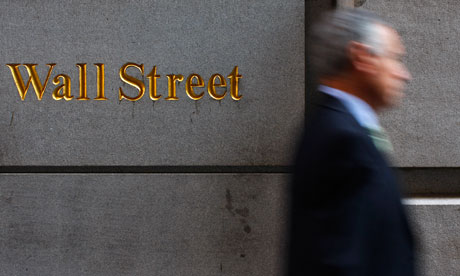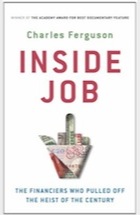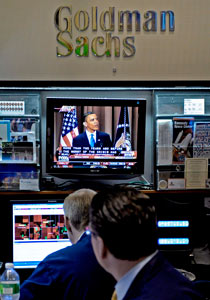
Tell-A-Vision = Why Not Try Love Again?
Sex Pistols
As the nation prepares to celebrate the Queen's diamond jubilee, some will be marking another anniversary -- 35 years since Sex Pistols' God Save the Queen was released. Here, five readers tell us their thoughts on the band's legacy
Guardian readers, guardian.co.uk, Friday 1 June 2012 06.32 EDT, Article Source
The Sex Pistols performing in 1978. Photograph: Rex FeaturesSonia Kilvington: 'They expressed the fears and disillusionment of our generation'
The Sex Pistols exploded onto the music scene in '77 as an antipathy of disco; and it had never felt so good to be so bad. With their slashed shirts, safety pins and bondage straps, everything about them screamed – stand back before you are consumed in the flames.
Who were these spikey haired villains, who scared the establishment so much? Were they the disenfranchised youth of Britain searching for an outlet for their aggression or a cynically staged musical movement, hell bent on grabbing Britain's appalled attention?
For me at seventeen, they were simply amazing. I had never seen such an explosion of creative energy. They made it cool to be angry and expressed the fears and disillusionment of our generation. It felt great to acknowledge that, yes; we had indeed, been cheated.Who can forget sad Sid who could barely play his guitar or that Jonny had nasty, rotten teeth? As the years passed, we were supposed to calm down, shut and get on with it, as if nothing remarkable had happened. The Sex Pistols claimed to be anarchists and the antichrist, but they were absolute heaven to me.
Richard Bibby: 'It felt like Punk was taking over the country'
I was an impressionable 15 year old during the Summer of 1977. I remember hearing an early pressing of God Save The Queen in Virgin Records Hull store one Saturday morning.It was like nothing i'd heard before and the most exciting record i'd ever heard. I vividly remember a Steve Hillage type long hair playing air guitar along with it behind the counter. Now that just wasn't right, but the image stuck with me. Never trust a hippy indeed.
When the record was released and hit the charts, receiving pretty much a blanket radio ban (apart from John Peel's show of course) and hearing that it charted at number 2 in Jubilee week (we found out later it was kept off number one my Rod Stewart under false pretenses) it felt like Punk was taking over the country. It was THAT serious.
Then news of the jubilee boat trip was reported in the media later (Had to wait for the NME to hear about that - no Facebook/Twitter in those days) and it felt like Anarchy was only a matter of days away.
Looking back on it now, the passage of time makes the whole situation seems a bit twee, but being a 15 year old at the time, it seemed like we could take over the world.
The feeling lasted but a matter of weeks, before the media etc. diluted the whole thing, and Punk became a cartoon of itself, but the legacy of the Summer of 1977 has stayed with me, and many others for the rest of my life. Those who "understood" cannot have failed to be influenced by it - in many different walks of life.
Never mind the Bollocks - This WAS the shit.
Phil Rebbeck: 'Their legacy has not endured'
As a band and a phenomenon the Sex Pistols were a blast of molten nihilism that sent-albeit briefly- shockwaves through the nation. In these days of expletive strewn reality TV shows it is easy to forget just how incendiary Rotten and his band of desperadoes were. Exhibiting personal bravery-they were subject to frequent attacks on the street-and a unwavering contempt for the bloated prog rock that dominated the music industry then, The Sex Pistols caused a moral panic like no other band before or since.
Musically, though, their legacy has not endured. Their two great singles still sound thrilling but much else of their limited output sounds tinny and even juvenile. Their three-chord rock, pared down rock spawned countless imitators but few of note. Of their contemporaries Joy Division, The Clash, even The Police have all been more influential. The Pistols themselves imploded after a few brief years culminating in Rotten's notorious San Francisco declaration "Ever had the feeling you been cheated?' And for all their bluster the institutions that they so despised are still here stronger than ever.
And let's not forget that this one time scourge of middle England ended up selling butter substitutes on television.
Dominic Mod: 'The Sex Pistols were useless, artless tossers'
The Sex Pistols were a bunch of wankers, we know this much is true.
Those who bleat today that they lack credibility forget they didn't have any credibility in the first place. They were proud of the fact indeed they made a virtue of it.
It's no surprise Rotten is selling butter or mincing about on I'm A Celebrity, if Sid hadn't checked out he would probably be gobbing in the swimming pool of the Celebrity Big Brother house by now.
But that is exactly why the Pistols made such a seismic impact on music and the whole of society in the 1970s and continue to do so today.
It needed telling, the time for earnest hairy blokes indulging in ten minute guitars solos was over,
The Pistols helped define the teenage nihilism of today and the message is almost more relevant now.
In an age of bland talent shows and manufactured nonsense, the Pistols' notion that everything is crap and the only thing to do about it is make your own crap remains the perfect definition of modern youth rebellion.
The Sex Pistols were useless, artless tossers and god bless them for it.
Tony Rhodes: 'The forerunners to changing trends in modern music'
Two schools of thought:
1. The Sex Pistols were a manufactured band who couldn't play their instruments , sing in tune or play live ; they relied entirely on shock value , reputation & hype to fuel their questionable success in the form of several lucrative record contracts before they disappeared from the scene. The parallels to today's Voice & X Factor contestants is uncanny – the lack of musical ability in abundance and careers based on hype - it is almost a replica.
2. Alternatively there is a strong argument to say the hype and chaos hid a unique talent and innovation that paved the way for 3 or 4 decades of music – where would modern music of the 80s, 90s and 00s be without the fast , throw away hallmarks of punk pioneered by the Pistols.
As with all schools of truth the answer probably lies in the middle but which ever theory you advocate there is no getting away from the fact that the Pistols were the forerunners to the ever changing trends in modern music and however uncomfortable the main characters are with that it is something all music lovers should be grateful for.
Heist of the century: Wall Street's role in the financial crisis
Wall Street bankers could have averted the global financial crisis, so why didn't they? In this exclusive extract from his book Inside Job, Charles Ferguson argues that they should be prosecuted
Charles Ferguson, guardian.co.uk, Sunday 20 May 2012 15.00 EDT, Article Source
When did Wall street know there was a bubble and that they could game it?' Photograph: Eric Thayer/Reuters/CorbisBernard L Madoff ran the biggest Ponzi scheme in history, operating it for 30 years and causing cash losses of $19.5bn. Shortly after the scheme collapsed and Madoff confessed in 2008, evidence began to surface that for years, major banks had suspected he was a fraud. None of them reported their suspicions to the authorities, and several banks decided to make money from him without, of course, risking any of their own funds. Theories about his fraud varied. Some thought he might have access to insider information. But quite a few thought he was running a Ponzi scheme. Goldman Sachs executives paid a visit to Madoff to see ifthey should recommend him to clients. A partner later recalled: "Madoff refused to let them do any due diligence on the funds and when asked about the firm's investment strategy they couldn't understand it. Goldman not only blacklisted Madoff in the asset management division but banned its brokerage from trading with the firm too."
Inside Job: The Financiers Who Pulled Off the Heist of the CenturyUBS headquarters forbade investing any bank or client money in Madoff accounts, but created or worked with several Madoff feeder funds. A memo to one of these in 2005 contained the following, in large boldface type: "Not to do: ever enter into a direct contact with Bernard Madoff!!!"
JPMorgan Chase had more evidence, because it served as Madoff's primary banker for more than 20 years. The lawsuit filed by the Madoff bankruptcy trustee against JPMorgan Chase makes astonishing reading. More than a dozen senior JPMorgan Chase bankers discussed a long list of suspicions.
The Securities and Exchanges Commission has been deservedly criticised for not following up on years of complaints about Madoff, many of which came from a Boston investigator, Harry Markopolos, whom they treated as a crank. But suppose a senior executive at Goldman Sachs, UBS or JPMorgan Chase had called the SEC and said: "You really need to take a close look at Bernard Madoff. He must be working a scam."
But not a single bank that had suspicions about Madoff made such a call. Instead, they assumed he was probably a crook, but either just left him alone or were happy to make money from him.
It is no exaggeration to say that since the 1980s, much of the global financial sector has become criminalised, creating an industry culture that tolerates or even encourages systematic fraud. The behaviour that caused the mortgage bubble and financial crisis of 2008 was a natural outcome and continuation of this pattern, rather than some kind of economic accident.
This behaviour is criminal. We are talking about deliberate concealment of financial transactions that aided terrorism, nuclear weapons proliferation and large-scale tax evasion; assisting in major financial frauds and in concealment of criminal assets; and committing frauds that substantially worsened the worst financial bubbles and crises since the Depression.
And yet none of this conduct has been punished in any significant way.
Total fines on the banks for their role in the Enron fraud, the internet bubble, violation of sanctions against countries including Iran and money-laundering activities appear to be far less than 1% of financial sector profits and bonuses during the same period.
There have been very few prosecutions and no criminal convictions of large US financial institutions or their senior executives. Where individuals not linked to major banks have committed similar offences, they have been treated far more harshly.
Goldman Sachs blacklisted Madoff, but didn’t alert the authorities. Photograph: Bloomberg/Bloomberg via Getty ImagesThe Obama government has rationalised its failure to prosecute anyone (literally, anyone at all) for bubble-related crimes by saying that while much of Wall Street's behaviour was unwise or unethical, it wasn't illegal. With apologies for my vulgarity, this is complete horseshit.
When the government is really serious about something – preventing another 9/11, or pursuing major organised crime figures – it has many tools at its disposal and often uses them. There are wiretaps and electronic eavesdropping. There are undercover agents who pretend to be criminals in order to entrap their targets. There are National Security Letters, an aggressive form of administrative subpoena that allows US authorities to secretly obtain almost any electronic record – complete with a gag order making it illegal for the target of the subpoena to tell anyone about it. There are special prosecutors, task forces and grand juries. When Patty Hearst was kidnapped in 1974, the FBI assigned hundreds of agents to the case.
In organised crime investigations, the FBI and government prosecutors often start at the bottom in order to get to the top. They use the well-established technique of nailing lower-level people and then offering them a deal if they inform on and/or testify about their superiors – whereupon the FBI nails their superiors, and does the same thing to them, until climbing to the top of the tree. There is also the technique of nailing people for what can be proven against them, even if it's not the main offence. Al Capone was never convicted of bootlegging, large-scale corruption or murder; he was convicted of tax evasion.
A reasonable list of prosecutable crimes committed during the bubble, the crisis, and the aftermath period by financial services firms includes: securities fraud, accounting fraud, honest services violations, bribery, perjury and making false statements to US government investigators, Sarbanes-Oxley violations (false accounting), Rico (Racketeer Influenced and Criminal Organisations Act) offences, federal aid disclosure regulations offences and personal conduct offences (drug use, tax evasion etc).
Let's take the example of securities fraud. Where to begin?
When did Wall Street insiders know there was a really serious sub-prime mortgage bubble, and that they could game it? Many of the clever ones knew by about 2004, when Howie Hubler at Morgan Stanley first started to bet against the worst securities with the approval of his management. But you can only make money betting against a bubble as it unravels. As long as there was room for the bubble to grow, Wall Street's overwhelming incentive was to keep it going. But when they saw that the bubble was ending, their incentives changed. And we therefore know that many on Wall Street realised there was a huge bubble by late 2006, because that's when they started massively betting on its collapse.
Here, I must briefly mention a problem with Michael Lewis's generally superb financial journalism. In his book The Big Short, Lewis leaves the impression that Wall Street was blindly running itself off a cliff, whereas a few wild and crazy, off-the-beaten-track, adorably weird loners figured out how to short the mortgage market and beat the system. With all due respect to Mr Lewis, it didn't happen like that. The Big Short was seriously big business, and much of Wall Street was ruthlessly good at it.
To begin with, a number of big hedge funds figured it out. Unlike investment banks, however, they couldn't make serious money by securitising loans and selling CDOs (collateralised debt obligations), so they had to wait until the bubble was about to burst and make their money from the collapse. And this they did. Major hedge funds including Magnetar, Tricadia, Harbinger Capital, George Soros, and John Paulson made billions of dollars each by betting against mortgage securities as the bubble ended, and all of them worked closely with Wall Street in order to do so.
In fairness to Mr Lewis, it is true that in several major cases – most notably Citigroup, Merrill Lynch, Lehman and Bear Stearns – senior management was indeed disconnected and thus clueless, allowed their employees to take advantage too long and therefore destroyed their own firms.
But cluelessness was most definitely not an issue with the senior management of Goldman Sachs, JPMorgan Chase and Morgan Stanley. As we saw, Morgan Stanley started betting against the bubble as early as 2004. Conversely, JPMorgan Chase mostly just remained prudently above the junk mortgage fray. Goldman Sachs, though, was in a class by itself. It made billions of dollars by betting against the very same stuff that it had been making billions selling only a year or two before.
Almost all the prospectuses and sales material on mortgage-backed bonds sold from 2005 until 2007 were a compound of falsehoods. And as the bubble peaked and started to collapse, executives repeatedly lied about their companies' financial condition. In some cases, they also concealed other material information, such as the extent to which executives were selling or hedging their own stock holdings because they knew their firms were about to collapse.
In some cases, we have evidence of senior executive knowledge of and involvement in misrepresentations. For example, quarterly presentations to investors are nearly always made by the CEO or chief financial officer of the firm; if lies were told in these presentations, or if material facts were omitted, the responsibility lies with senior management. In other cases, such as Bear Stearns, we have evidence from civil lawsuits that senior executives were directly involved in selling securities whose prospectuses allegedly contained lies and omissions.
The Rico Act provides for severe criminal (and civil) penalties for operating a criminal organisation. It specifically enables prosecution of the leaders of a criminal organisation for having ordered or assisted others to commit crimes. It also provides that racketeers must forfeit all ill-gotten gains obtained through a pattern of criminal activity, and allows government prosecutors to obtain pre-trial restraining orders to seize defendants' assets. Finally, it provides for criminal prosecution of corporations that employ Rico offenders.
Bernard Madoff confessed to operating a giant Ponzi scheme. Photograph: Timothy A Clary/AFP/Getty ImagesRico was explicitly intended to cover organised financial crime as well as violent criminal organisations such as the mafia and drug cartels. A great deal of the behaviour that occurred during the bubble would appear to fall under Rico statutes. Moreover, pre-trial asset seizure is a widely and successfully used technique in combating organised crime, and asset seizures now generate more tha $1bn a year for the US government. However, there has not been a single Rico prosecution related to the financial crisis, nor has a single Rico restraining order been issued to seize the assets of any individual banker or any firm.
It is important to note here that these asset seizures would not merely represent justice for offenders but for victims as well. US law allows seized assets to be used to compensate victims. In this case, the potential economic impact of seizures could be enormous.
Finally, personal conduct subject to criminal prosecution might range from possession and use of drugs, such as marijuana and cocaine, to hiring of prostitutes, employment of prostitutes for business purposes, fraudulent billing of personal or illegal services as business expenses (sexual services, strip club and nightclub patronage), fraudulent use or misappropriation of corporate assets or services for personal use (eg use of corporate jets), personal tax evasion and a variety of other offences.
I should perhaps make clear here that I'm not enthusiastic about prosecuting people for possession or use of marijuana, which I think should be legal. In general, I tend to think that anything done by two healthy consenting adults, including sex for pay, should be legal as well.
But the circumstances here are not ordinary. First, there is once again a vast disparity between the treatment of ordinary people and investment bankers. Every year, about 50,000 people are arrested in New York City for possession of marijuana – most of them ordinary people, not criminals, whose only offence was to accidentally end up within the orbit of a police officer. Not a single one of them is ever named Jimmy Cayne, despite the fact that the marijuana habit of the former CEO of Bear Stearns has been discussed multiple times in the national media (his predecessor in the job, Ace Greenberg, called him a "dope-smoking megalomaniac").
There is also a second, even more serious, point about this. If the supposed reason for failure to prosecute is the difficulty of making cases, then there is an awfully easy way to get a lot of bankers to talk. It is a technique used routinely in organised crime cases. What is this, if not organised?
As time passes, criminal prosecution of bubble-era frauds will become even more difficult, even impossible, because the statute of limitations for many of these crimes is short – three to five years. So an immense opportunity for both justice and public education will soon be lost. In some circumstances, cases can be opened or reopened after the statute of limitations has expired, if new evidence appears; but finding new evidence will grow more difficult with time as well. And there is no sign whatsoever that the Obama administration is interested.
Charles Ferguson will appear at the Edinburgh international book festival on Sunday 12 August.
Bruce Springsteen lashes bankers during Berlin concert
Rocker taps into anger at financial world, dedicating anti-bank song to 'those who are struggling in Europe and Berlin'
Reuters in Berlin, guardian.co.uk, Thursday 31 May 2012 03.03 BST, Article Source
Bruce Springsteen tapped into Europe's anger at bankers while performing
at the Olympiastadion in Berlin. Photograph: Britta Pedersen/EPABruce Springsteen has touched on a nerve of widespread discontent with financiers and bankers while performing a concert in Berlin.
Springsteen played to a sold-out crowd at Berlin's Olympiastadion, singing from his album Wrecking Ball and speaking about tough economic times that have put people out of work worldwide and led to debt crises in Greece and other countries.
"In America a lot of people have lost their jobs," said Springsteen, 62, who performed for three hours to 58,000 fans in the stadium that hosted the 1936 Olympics and 2006 World Cup final.
"But also in Europe and in Berlin, times are tough," he said, speaking in German. "This song is for all those who are struggling." He then introduced Jack of All Trades, a withering attack on bankers that includes the lyrics: "The banker man grows fat, working man grows thin."
Europe has been especially hard hit since 2008's financial meltdown that sparked an enduring sovereign debt crisis. Unemployment on the continent has risen to levels not seen since the 1990s.Springsteen's Wrecking Ball tour began on 13 May in Spain, which is struggling with its crushing debt load, and runs for two and a half months with 33 stops in 15 countries before concluding on 31 July in Helsinki.
Berlin has been a special place for Springsteen since his July 1988 concert behind the old Iron Curtain in East Berlin.
Watched by 160,000 people, it was the biggest rock show in East German history, and The Boss spoke out against the "barriers" keeping East Germans prisoners in their country. Some historians have said the concert fed into a movement gaining moment at the time that contributed to the tearing down of the Berlin Wall 16 months later in November 1989.
"Once in a while you play a place, a show that ends up staying inside of you, living with you for the rest of your life," he told the crowd on Wednesday after being handed a poster from a fan thanking him for the 1988 concert. "East Berlin in 1988 was certainly one of them."Germany has weathered the financial crisis well so far but Berlin itself is struggling with double-digit unemployment, low wages and a high incidence of poverty.
"The financial world has caused us all a lot of our problems and Springsteen has always been a critical spirit – that's what I like about him," said Kathleen Wapp, a 42-year-old doctor's assistant from Wolfsburg who was at the show. "I like the way he's not afraid to put a critical light on the key issues."
"I think it's great the way he's taking on the banking industry - he's got it dead right," said Matthias Beck, 46, a carpenter from Leipzig. "There's hardly anything good about banks. They take advantage of the little people and it's always hard to find someone who'll take responsibility when it all goes wrong."
Bruce Springsteen & Tom Morello - The ghost of Tom Joad (Rock & Roll Hall of Fame, 2009)
http://www.youtube.com/embed/mzRbeHyIomkEcstasy and cannabis should be freely available for study, says David Nutt
Former government adviser says regulations make it too difficult to research psychoactive drugs with potential medical uses
Alok Jha, science correspondent, The Guardian, Thursday 31 May 2012, Article Source
Nutt said there had been little research on drugs like cannabis that could help scientists
understand consciousness, mood and psychosis. Photograph: GuardianThe classification system that makes drugs such as cannabis and MDMA (ecstasy) illegal has prevented scientists from properly researching their possible therapeutic uses for conditions such as schizophrenia and depression, according to the government's former chief adviser on drugs.
Professor David Nutt said the UK's laws on misuse of drugs needed to be rewritten to more accurately reflect their relative harms and called for a regulated approach to making drugs such as MDMA and cannabis available for medical and research purposes.
"Regulations, which are arbitrary, actually make it virtually impossible to research these drugs," said Nutt. "The effect these laws have had on research is greater than the effects that [George] Bush stopping stem cell research has had because it's been going on since the 1960s."
Almost all the drugs that could help scientists to understand brain phenomena such as consciousness, perception, mood and psychosis are illegal, including ketamine, cannabis, MDMA and psychedelic drugs such as magic mushrooms. Nutt said there had been almost no work in this field because the government made it difficult for scientists to access the drugs.
A Home Office spokesperson told the Guardian: "The Home Office licensing regime enables bona fide institutions to carry out scientific research on controlled substances while ensuring necessary safeguards are in place."
Nutt, who is professor of neuropsychopharmacology at Imperial College London, made his comments at a briefing in London on Wednesday to mark the launch of his book, Drugs Without the Hot Air.
He is used to being a thorn in the side of the authorities when it comes to drugs regulation. In 2009, he was sacked by the then health secretary, Alan Johnson, from his post as chair of the government's Advisory Council on the Misuse of Drugs for publicly stating that alcohol and tobacco were more harmful than LSD, ecstasy and cannabis.
Researchers who want to experiment on illegal drugs, which come under the schedule 1 list of the Misuse of Drugs Regulations 2001, must apply for a licence from the Home Office. This takes a year to approve and costs thousands of pounds. Researchers are also required to have secure storage facilities and are subject to random inspections by police.
"[The rules] completely limit research at the real cutting edge of science," said Nutt. "I wonder how many other opportunities have been lost in the last 40 years with important drugs like MDMA, with its empathetic qualities, drugs like LSD in terms of treating addictions, cannabis for all the possible uses and insights which it might have for things like schizophrenia. All of those opportunities have been wasted because it is virtually impossible, when a drug's illegal, to work with it."
One of the best treatments for people with post-traumatic stress disorder is to get them to relive their trauma and then teach them how to delete or somehow control the memories. "But many people are so traumatised that, once the memories come back, they just dissociate and can't hold it long enough in order to deal with it," said Nutt.
"There's been one study in the US showing that MDMA, by damping down the negative emotions associated with the trauma, allow people to get into the therapy and get better. We're very keen to set up a similar trial in the UK. The paradox will be that, even if we can show it could work, no one could use it in the UK because no doctor would have the licence.
"LSD was trialled as a treatment for alcoholism in the 1960s and Nutt said the "evidence is that it's as good as anything we've got, maybe better. But no one's using it because it's too difficult."
Nutt said that the lack of scientific research was a direct result of the UK's arbitrary classification of drugs. "Drugs are drugs – they differ in terms of their brain effects but, fundamentally, they're all psychotropic agents and it is arbitrary whether we choose to keep alcohol legal or ban cannabis or make tobacco legal and ban ecstasy. Those are not scientific decisions, they're political or moral or religious decisions."
According to Nutt, research into the effects of drugs would lead to a more rational approach. He said the laws around the misuse of drugs needed to be rewritten, after a thorough, independent review of the harms involved.
"I'm not in favour of legalisation, a free open market of all drugs – that does lead to more use," he said. "We need regulated access across the board."
This would mean drugs such as cannabis, MDMA or PZP being made available for treatments through a pharmacy. Patients could be issued with a card and given access to an annual supply, he said. "Then at least you would know what you were getting."
Doc Watson - Deep River Blues
http://www.youtube.com/watch?v=6VAbrnjdtYw&feature=player_embedded
Blind folk guitarist from North Carolina won eight Grammy awards and inspired generations of musicians
Charles Taylor, Mujahideen, al Qaeda, Pat Robertson, and Foggy Bottom
Shouldn't Birds Of A Feather Do Time Together?
I noticed Charles Taylor was sentenced to 50 years in prison for war crimes and the Judge at court in The Hague says ex-Liberia president's crimes were of the 'utmost gravity in scale and brutality'.
Charles Taylor: Pat Robertson was my man in Washington
Posted By Colum Lynch Thursday, February 4, 2010 - 8:14 PM, Article Source
Former Liberian President Charles Taylor, testifying in his own war crimes trial today, said that the American conservative evangelist Pat Robertson was awarded a Liberian gold-mining concession in 1999 and subsequently offered to lobby the Bush administration to support his government.
The revelations came in the midst of a U.N.-backed trial of Taylor at The Hague on 11 counts of war crimes and crimes against humanity during Sierra Leone's 1990s civil war. Taylor is accused of directing a Sierra Leone rebel group, the United Revolutionary Front (RUF), in a campaign aimed at securing access to the country's diamond mines. The rebel movement stands accused of committing mass atrocities in the late 1990s in the West African country, including the mutilation of thousands of civilians.
The international prosecutors contend that Taylor offered concessions to Western individuals in exchange for lobbying work aimed at enhancing his image in the United States. The prosecution maintains that Taylor also spent $2.6 million on lobbying firms and public relations outfits in the hopes of influencing the policies of former President Bill Clinton and George W. Bush.
Under cross-examination, Taylor said that Robertson had volunteered to make Liberia's case before U.S. administration officials, and had spoken directly to President Bush about Taylor. He also confirmed that Robertson's company, Freedom Gold Limited, signed an agreement to exploit gold in southeastern Liberia, but that it never generated any profit.
"Mr. Taylor, indeed at one point you said that you can count on Pat Robertson to get Washington on your side," he was asked by the lead prosecution counsel, Col. Brenda Hollis, a former U.S. Air Force officer. Taylor replied: "I don't recall the exact words, but something to that effect."
A spokesman for Robertson, Chris Roslan, confirmed that Robertson was awarded a gold exploration concession by the Liberian government during the 1990s. But he said that there was "no quid pro quo" to provide the government with anything in return. Roslan said the company, Freedom Gold, is no longer in operation and has never found any gold.
"This concession was granted by the Liberian government to promote economic activity and alleviate the suffering of the people of Liberia following a terrible civil war," said Roslan, adding that Robertson had never met Taylor or paid him any money. "Freedom Gold accomplished this by employing some 200 Liberians in addition to providing humanitarian efforts including free medical care and installation of clean water wells for area residents."
Charles Taylor's al Qaeda Links...Global Witness Opens Lid
Montserrado County, Liberia
20 February, 2009
Categorized as pertaining to: HearingsThen President Charles Taylor received a US$1 million payment for arranging to harbor two al Qaeda operatives in Liberia soon after the September 11 terrorist attacks on the United States, Global Witness said.
The men, Ahmed Khalfan Ghailani and Fazul Abdullah Mohammed, both of whom were on the FBI's Most Wanted List of Terrorists, Global Witness said, were hidden at the Gbartala Base in Bong County.
Testifying Friday at the Economic Crimes Hearing of the Truth and Reconciliation Commission of Liberia (TRC), Patrick Alley, one of the directors of Global Witness said Al Qaeda's interest in Liberia and Sierra Leone goes back to the late 1990s, when the Taylor-backed RUF rebels were in control of the lucrative diamond fields of Sierra Leone.
Global Witness said in 1998, soon after the attacks on US missions in Africa, a senior al Qaeda financial officer, Abdullah Ahmed Abdullah, arrived in Monrovia. The group said that Abdullah was introduced to RUF leaders including Sam "Maskita" Bockarie, by Ibrahim Bah.
According to Mr. Alley, the same two al Qaeda operatives traveled to Liberia in March 1999 in order to establish a diamonds for arms deal and spent a few days scouting the RUF diamond fields in Sierra Leone, as well as meeting with Bockarie and giving him US$100,000 in cash for a parcel of diamonds.
"By January 2001, employees of Aziz Nassour, who is associated with the Antwerp based diamond trading company ASA Diam, had established control over RUF diamonds in exchange for arms, and his control continued until November 2001."
Mr. Alley said Nassour along with his business associate and cousin Samih Osailly, were named in international criminal investigations as being involved in dealing in diamonds for al Qaeda but all three men denied the allegations. But he said that Nassour, though denying any illegal wrongdoing, admitted to being involved in the diamond trade in Sierra Leone and elsewhere and also admitted to attempting to do other business deals with President Taylor.
"In fact Nassour and Taylor are quite well acquainted. Eyewitnesses put Nassour and Taylor together for a July 2001 meeting at Harper Port in Maryland County near the border with Cote d'I voire, where much of Liberia's illicit weaponry arrives. There Nassour allegedly gave Taylor US$200,00 to ensure his support for the ongoing diamond dealing," he said.
He said Global Witness research and investigations found that since 1993, al Qaeda was buying diamonds to make money and to commodify its assets, shifting them away from traditional bank accounts that are subjected to surveillance by financial authorities and are under threat of being frozen to less traceable commodities such as diamonds.
Under the theme: "Economic Crimes, Corruption and the Conflict in Liberia: Policy Options for an Emerging Democracy and sustainable peace," the weeklong hearing addressed the contribution of economic crimes to the conflict including corruption and the illicit exploitation of natural resources.
The hearing also discussed the correlation between the extractive industry and the fueling of the conflict and appropriate policies aimed at reversing the unauthorized exploitation of the natural resources by individuals, groups and the government for purposes external to the national good.
Pursuant to the TRC Act of 2005, the commission is mandated to investigate gross human rights violations and violations of international humanitarian law as well as abuses that occurred, including massacres, sexual violations, murder, extra-judicial killings and economic crimes, such as the exploitation of natural or public resources to perpetuate armed conflicts during the period January 1979 to October 14, 2003.
The commission is mandated to determine whether these were isolated incidents or part of a systematic pattern; establishing the antecedents, circumstances, factors and context of such violations and abuses; and determining those responsible for the commission of the violations and abuses and their motives as well as their impact on victims.
Pat Robertson: The Anglo-American support apparatus behind the Afghani mujahideen
Following the invasion of Afghanistan by the Soviet Union in December 1979, the U.S. administration, first under Carter and then under Reagan, launched a massive support and training campaign for the Afghan freedom fighters, or "mujahideen" (holy warriors), as they came to be known. In addition to overt and covert funding operations by various U.S. governmental agencies for the mujahideen, a plethora of private "aid" agencies, think-tanks, and other odd outfits joined the fray, with the ostensible aim of helping the Afghans to liberate their nation from the clutches of the Soviet invaders.
However, a closer look at the activities of these private agencies reveals that there was much more at stake. As the profiles below show, the source of policy for most of these groups was British intelligence. As such, these groups lobbied the U.S. Congress, set up conferences, launched pro-mujahideen propaganda campaigns, and, in some cases, even provided military training for various mujahideen groups. U.S. policy toward Afghanistan, and the region, was largely determined by the aims of these "committees," which also represented the controlling "mediators" between the mujahideen and British policy.
Some of the members and leaders of the organizations profiled below were also involved with some of the figures in the drugs-for-guns related Iran-Contra networks of then - Vice President George Bush and his sidekick Oliver North.
[snip]
Fundraisers for the CFA included the Bush-linked televangelist Pat Robertson, former Ambassador Angier Biddle Duke, and former U.S. Attorney General Eliot Richardson. - [Continue Reading - Also note: Diamonds are Robertson's best friend and Pat Robertson and His Business Buddies]
Pat Robertson's 'nuke' idea draws protest
State Dept. spokesman: 'Idea is despicable'
WASHINGTON (CNN) -- Television evangelist and Christian Coalition founder Pat Robertson's suggestion that a nuclear device should be used to wipe out the State Department was "despicable," department spokesman Richard Boucher said Thursday.
"I lack sufficient capabilities to express my disdain," Boucher said. "I think the very idea is despicable."
A senior State Department official, who did not want to be identified, said the department has expressed its displeasure to Robertson.
Robertson made the comments during a series of interviews on his "700 Club" television show with journalist Joel Mowbray, author of a new book, "Dangerous Diplomacy: How the State Department Endangers America's Security."
Robertson founded the Christian Coalition in 1989 after running for U.S. president as a Republican in 1988.
Introducing Mowbray on his show, Robertson said that a reader of his book could conclude that the State Department needed a nuclear explosion.
"I read your book," Robertson said. "When you get through, you say, 'If I could just get a nuclear device inside Foggy Bottom, I think that's the answer,' and you say, 'We've got to blow that thing up.' I mean, is it as bad as you say?" Robertson said.
"It is," Mowbray said, although his book never suggests that the State Department should be blown up with a nuclear device.
Foggy Bottom is the nickname for the State Department's Washington headquarters.
In a June interview with Mowbray on the "700 Club", Robertson made similar remarks.
"Maybe we need a very small nuke thrown off on Foggy Bottom to shake things up like Newt Gingrich wants to do," he said.
Robertson was referring to former U.S. House Speaker Newt Gingrich, who was part of a group of conservatives accusing the State Department of undermining U.S. foreign policy by coddling authoritarian governments in the Middle East.
Mowbray has been a critic of the State Department, especially its visa program with Saudi Arabia. Fifteen of the 19 hijackers in the September 11, 2001, attacks were Saudi citizens.
Lies, Lies, Lies - BlackMustache.com
Amestizo - BLOG
White Horse Prophecy
From Wikipedia, the free encyclopedia
The White Horse Prophecy is a statement purported to have been made in 1843 by Joseph Smith, Jr., founder of the Latter Day Saint movement, regarding the future of the Latter Day Saints (Mormons) and the United States of America. The Latter Day Saints, according to the prophecy, would "go to the Rocky Mountains and ... be a great and mighty people", identified figuratively with the White Horse described in the Revelation of John. The prophecy further predicts that the United States Constitution will one day "hang like a thread" and will be saved "by the efforts of the White Horse".
Some have speculated, on the basis of the White Horse Prophecy, that Mormons expect the United States to eventually become a theocracy dominated by The Church of Jesus Christ of Latter-day Saints (LDS Church). The authenticity of the prophecy as a whole, which was not made public until long after Smith's death, is debated, and the leadership of the LDS Church has stated that "the so-called 'White Horse Prophecy' ... is not embraced as Church doctrine." However, the belief that members of the LDS Church will one day need to take action to save the imperiled US Constitution has been attributed to Smith in several sources and has been discussed in an approving fashion by Brigham Young and other LDS leaders.
Several prominent Mormons have made statements related to the White Horse Prophecy. For instance, US presidential candidate Mitt Romney has said he considers the White Horse Prophecy to be a matter of "speculation and discussion by [LDS] church members" and "not official [LDS] church doctrine.
Continue reading at: http://en.wikipedia.org/wiki/White_Horse_Prophecy
Fukushima Day 444 - Terry the Radioactive Tuna...STAY OFF the TUNA
http://www.youtube.com/watch?v=yfuoEoyN96U
Tuna contaminated with Fukushima radiation found in California
Scientists amazed that bluefins swimming in Pacific five months after Japanese disaster contained tiny amounts of caesium
Justin McCurry in Tokyo and agencies, guardian.co.uk, Tuesday 29 May 2012 05.59 EDT, Article Source
The Japanese government says it will look into international monitoring of fish products after low levels of radiation were found in bluefin tuna in Californian waters == Click to Watch Video
The Japanese government says it will look into international monitoring of fish products after low levels of radiation were found in bluefin tuna in Californian waters. A report shows radiation was detected in 15 tuna caught near San Diego in August 2011, about four months after chemicals were released into the water off Japan's east coast
Bluefin tuna contaminated with radiation believed to be from Fukushima Daiichi turned up off the coast of California just five months after the Japanese nuclear plant suffered meltdown last March, US scientists said.
Tiny amounts of caesium-137 and caesium-134 were detected in 15 bluefin caught near San Diego in August last year, according to a study published on Monday in the Proceedings of the National Academy of Sciences journal.
The levels were 10 times higher than those found in tuna in the same area in previous years, but still well below those that the Japanese and US governments consider a risk to health. Japan recently introduced a new safety limit of 100 becquerels per kilogram in food.
The timing of the discovery suggests that the fish, a prized but dangerously overfished delicacy in Japan, had carried the radioactive materials across the Pacific ocean faster than those conveyed by wind or water.
The researchers, led by Daniel Madigan at Stanford University, said they had found evidence that the fish had been contaminated at "modestly elevated" levels with caesium. The chemical was released into the ocean in the wake of the accident at Fukushima Daiichi on 11 March 2011.
Madigan told Reuters: "I wouldn't tell anyone what's safe to eat or what's not safe to eat. It's become clear that some people feel that any amount of radioactivity, in their minds, is bad and they'd like to avoid it. But compared to what's there naturally ... and what's established as safety limits, it's not a large amount at all."
The fish are thought to have been exposed to radiation for about a month before beginning their journey east across the Pacific. They were found to contain 4 becquerels per kilogram of caesium-134 and 6.3 becquerels per kilogram of caesium-137, the report said. A 2008 study of fish in the area found no evidence of caesium-134, which is produced only by nuclear power plants and weapons, and caesium-134 only at levels that naturally occur in the environment.
The results "are unequivocal. Fukushima was the source", said Ken Buesseler of the Woods Hole Oceanographic Institution, who played no part in the research.
Japan's chief cabinet secretary, Osamu Fujimura, conceded that the findings suggested the monitoring of radiation levels in fish outside Japanese waters may have to be stepped up.
The spawning and migratory patterns of bluefin tuna indicate that the issue of contaminated fish will be confined to Pacific coastlines.
Bluefin spawn only in the western Pacific, off the coasts of Japan and the Philippines. Some juvenile or adolescent fish migrate east to the coast of California coast and remain there to fatten up.
Scientists say they do not believe contamination will linger in large fish capable of swimming farther afield, as they are able to metabolise and excrete radioactive substances.
The fish examined in the US study weighed an average of 15 pounds. They had shed some of the radionuclides during their journey but had been unable to flush them out altogether.
"We were frankly kind of startled," said Nicholas Fisher, an expert at Stony Brook University in New York who took part in the study. "That's a big ocean. To swim across it and still retain these radionuclides is pretty amazing."
The operator of the Fukushima Daiichi plant, Tokyo Electric Power, estimates that 18,000 terabecquerels of radioactive materials flowed into the Pacific after the accident, either in the form of fallout, or through mixing with water that leaked from the facility. A terabecquerel is equal to 1tn becquerels.
Advertisers Should Pay For Subscription Television,
Not Subscribers !!!
Paying for Subscription TV Commercials Is Stupid
Broadcasters Warn of Apocalypse in Dish's Ad-Skipping Service
By David Kravets, May 25, 2012, 3:16 pm, Article Source
Broadcasters are claiming in federal lawsuits Thursday that Dish Network's DVR service, which allows the automatic skipping of commercials, breaches copyright law and retransmission agreements.
The suits by Fox, CBS and NBC are the broadcasters' latest legal salvos against technological innovations, as those advances bring into question whether broadcasters' longstanding business model can survive the digital age.
The Dish Network litigation concerns the March introduction of what the satellite company calls PrimeTime Anytime, which allows customers to record and store about a week's worth of prime-time broadcast television. And two weeks ago, the Colorado company enabled playback of those archives without users seeing commercials.
The networks are labeling it a "bootleg" service that produces unauthorized copies of their shows and say it breaches signed licensing deals. And the consequences are dire, they warn. If the courts don't block the service, it "will ultimately destroy the advertising-supported ecosystem that provides consumers with the choice to enjoy free over-the-air, varied, high-quality primetime broadcast programming," the broadcasters told the court.
In the early 1980s, the Supreme Court ruled Americans have the fair use right to time-shift lawfully obtained content for later viewing. But that was using primitive technology like the VCR and Betamax, with limited recording capabilities. The Dish service records a day's prime time lineup from ABC, CBS, NBC and Fox and stores up to 100 hours of those shows for up to eight days - all without the broadcasters' consent.
"Fox has not consented to the recording of its copyrighted programs by Dish, or to the distribution by Dish to its subscribers of copies of all of Fox's prime time programming for subsequent on-demand, commercial-free viewing," Fox wrote in its suit.
Dish has also lodged its own federal lawsuit, seeking a declaratory judgement that its service is legal.
"Dish's subscribers, private home viewers sitting in their living rooms, may fairly choose for themselves the content that they do and do not want to watch, and have paid for the right to do so," Dish said in the filing. (.pdf)
Dish said that its customers, "with one click," are doing the copying of the broadcasts, and have that right. And the broadcasters are still getting their retransmission fees, the company added.
"Dish subscribers are already paying for their television service. Dish passes along hundreds of millions of dollars collected from its subscriber base to the major television networks in the form of retransmission fees," Dish said in its filing.
Analysts suspect the ad-skipping feature was just introduced to give Dish leverage in the next round of retransmission-fee negotiations. The Big Four broadcasters' retransmission fees doubled last year to combined $394 million, and might double again this year, Variety said.
Variety quoted Janney Capital Markets analyst Tony Wible as saying the broadcasters are overstating their case. He suggested the ad-skipping feature might eat into 1 percent of their advertising revenue, about $162 million.
But the feature does point to an interesting possible future of a TiVo without real limitations. Given how storage prices continue to drop and that you can buy a 1Terabyte hard drive for under $100, one could imagine a future where anyone who wanted to could skip all commercials by having every show recorded to disk.
The development comes a week before a New York federal judge is set to hear broadcasters' arguments that an upstart technology company called Aereo that streams over-the-air broadcasts to New Yorkers should be shut down.
Aereo's New York customers basically rent two tiny antennas, each about the size of a dime. Tens of thousands of the antennas are housed in a Brooklyn data center. One antenna - unique to a customer - is used when a customer wants to watch a program in real time from a computer, tablet or mobile phone. The other works with a DVR service to record programs for later online viewing.
Federal retransmission licensing agreements are silent when it comes to internet streaming, so Aereo claims it does not have to licensing fees. The broadcasters claim Aereo is practicing "technological gimmickry" to skirt paying them licensing fees.
Dark Matter Stages Comeback
The matter that's not not not there
Our local dark matter stages a comeback
Jon Butterworth, guardian.co.uk, Life and Physics, Friday 25 May 2012 07.30 BST, Article Source

Purple haze shows dark matter flanking the 'Bullet Cluster'. Photograph: AP.
Astronomers study the motion of stars in galaxies, as they twist and rotate under each other's gravitational attraction. The motion throws up a long-standing puzzle in astrophysics: The way the stars move indicates the presence of a certain amount of matter in the galaxies. But when you count up the matter in the visible stars, there isn't enough.
This matter that's "not there" in the visible galaxy is called "dark matter". No one knows what it is. It could for example by supersymmetric fundamental particles, which we might see in high energy particle colliders like the LHC, although none has put in an appearance so far. Several highly sensitive experiments huddled deep underground, where backgrounds are low, are hunting for hints of low-energy collisions between the atoms of the detectors and the dark matter particles the Earth is presumably passing through on its path through space. Despite some hints, no compelling discovery has been made yet.
This is one of the frontiers of knowledge. Either dark matter is about 80% of the matter in the universe and we don't know what it is, or our theory of gravity is wrong. One way or another, we want to know.
Last month, a paper came out which threw a spanner into these already mysterious works. An analysis of the movement of the stars nearest us in the galaxy showed that their movements didn't require any dark matter. All the matter they needed was there in the visible stars; or as I put it on the radio, it was "not not there".
This was very puzzling, since as I said above, similar studies of the motion of more distant stars show strong evidence for dark matter, and other evidence points that way too. Was the Earth in some weird dark-matter-free void, while the rest of the universe was full of the stuff? Obviously a concern if you are sitting underground looking for particles of it.
Well, a new paper out now claims that the analysis in this paper was wrong.
To get the result, an assumption about the average circular motion of stars, and in particular how that motion changes with the "height" of stars above the galactic disk, had to be put in. The first paper assumed it didn't change with height. The new paper says that it must.
If I understand correctly this is due to the fact that stars do not travel in perfect circles around the galactic centre, but have a random component of motion which means they oscillate around such circular paths instead. If you combine this with the known fact that the density, and random motion, of stars decrease as the distance from the centre of the galaxy increases, you get what is called "asymmetric drift". I think this boils down to the fact that more stars in our vicinity are in fact inner stars on the outer bit of their oscillation than are outer stars on the inner bit of their oscillation. By "inner", I mean stars which spend most of their time nearer the centre of the galaxy than us, and "outer" that they spend more time further out. This effect most likely changes with height above the galactic disk too. The authors of the new paper take this into account, and come to the conclusion that there is evidence for matter which is not there in the visible stars. Or if you prefer, not not not there. Either way, dark matter is back on the agenda.
Dark matter and astrophysics are close to my own field of high energy particle physics, but not identical to it. I am not really competent to referee either of these papers, and may have misunderstood. Trying to understand it, I am quite surprised at the number of assumptions that have to be made to get the result out - this is not a very clean or direct measurement, in fact. The first paper was indeed refereed and published. The second paper is not yet accepted by a journal but the authors are very well-respected and my favourite astroblogger thinks it's right. I'd probably bet on that at this stage. At the very least it seems the first result was not as conclusive as it claimed.
We shall see. As someone said at the Ri science and media discussion organised by Alok Jha in March: "Peer review is a sort of 'kite mark' of quality, but no such kite mark can be perfect." and "The first paper is rarely the final word, and is often wrong."
May 24th. = Happy Birthday Tommy Chong (1938) and Bob Dylan (1941)
F a d e b o o k
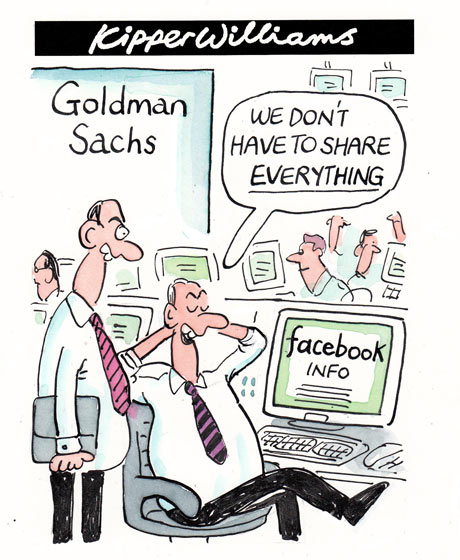
We don't have to share everything
Kipper Williams cartoon: Goldman Sachs and the Facebook IPO
guardian.co.uk, Thursday 24 May 2012 09.50 BST - Cartoon Source
Facebook founder Mark Zuckerberg sees stock tumble amid IPO lawsuits
Now they call it Fadebook – shareholders call in lawyers as stock price tumbles and regulators are not far behind
Juliette Garside, guardian.co.uk, Wednesday 23 May 2012 20.36 BST, Article Source
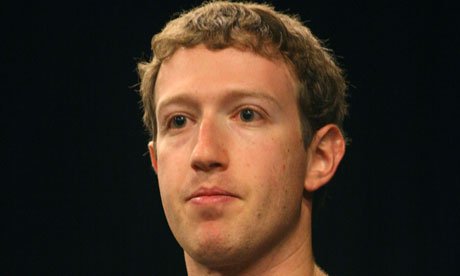
Facebook founder Mark Zuckerberg said the site was going public 'for our employees
and our investors'. Photograph: Kimihiro Hoshino/AFP/Getty Images
Facebook's founder, Mark Zuckerberg, has gone from hero to zero as the stockmarket flotation of the decade flounders amid lawsuits and accusations of greed, hype and deception.
The law firm that won a $7bn settlement for Enron's shareholders is pursuing Zuckerberg, his board and the long list of banks advising the company for making "untrue statements" about its financial performance.
Robbins Geller is bringing the second class action law suit in as many days against Morgan Stanley, Goldman Sachs, Barclays and a host of Silicon Valley luminaries including PayPal guru Peter Thiel. A separate suit filed in California on Tuesday by investor Darryl Lazar claims that the social network's share prospectus contained "materially false and misleading statements".
The regulators are also closing in. Mary Schapiro, chair of America's main financial watchdog, the Securities and Exchange Commission, said: "I think there is a lot of reason to have confidence in our markets and in the integrity of how they operate, but there are issues that we need to look at specifically with respect to Facebook."
After months of hype about the float of the social networking site, which has nearly a billion users across the globe, the appetite for its shares has collapsed since its launch at $38 per share on Friday. The shares are now trading at $31.78, leaving the company that boasts a user base including half the American population is worth £4bn less than it was six days ago, and earning it a new moniker: Fadebook.
So while the social network's bankers and its wealthy early investors have profited handsomely from the float, the legal profession is set to cash in.
Both lawsuits claim that certain investors had access to information that would have dented confidence in the shares, while others were left in the dark.
The problems began on 9 May, when Facebook amended its initial public offering (IPO) prospectus with a short and, for some, hard-to-interpret reference to the fact that while its usage on mobile phones was growing exponentially, the company was finding it harder to sell advertising on its mobile website than on "desktop" pages.
Analysts promptly began revising their forecasts. Those included Scott Devitt, who covers consumer internet firms for Morgan Stanley. The bank, as lead underwriter for the IPO, was employed as Facebook's cheerleader-in-chief.
According to Reuters – Morgan Stanley has not yet made the date or the content of the forecasts available to the public – Devitt decided that revenues in the second quarter of this year, which runs until the end of June, would be $1.111bn (£705m), down from an earlier estimate of $1.175bn. He shaved full-year forecasts too, from $5bn to $4.85bn. JP Morgan and Goldman Sachs, the second and third lead underwriters, also downgraded their estimates.
Participating banks cannot publicly issue research or make recommendations until 40 days after an IPO is priced, but their analysts are allowed to communicate estimates orally to customers. The concern is that this information may have filtered through only to a privileged few rather than the wider public.
In a statement, Morgan Stanley said a "significant number" of analysts in the IPO syndicate reduced their estimates after Facebook's disclosure on 9 May, adding: "Morgan Stanley followed the same procedures for the Facebook offering that it follows for all IPOs. These procedures are in compliance with all applicable regulations."
The actions of Facebook's underwriters in the days that followed gave no hint of the information they were receiving from their own number-crunchers.
On Tuesday, 15 May, the range at which they estimated the float would be priced was raised from $28–$35 to $34–$38. A day later, the insiders and early investors who had invested in Facebook during private funding rounds increased the number of shares they planned to sell during the IPO by a massive 25%.
Those most likely to have heard the analysts' downgrades may have decided that the shares would not enjoy the widely expected day-one surge, seen when Google and the professional networking site LinkedIn went public. Basically, for those in the know, at $38 a share, Facebook was a "sell".
Smaller retail investors appear to have paid the price. Only 10% to 15% of shares were thought likely to go to small shareholders. Estimates suggest that the bulk of the 84m extra shares released last Wednesday went to investors at the bottom of the tree.
Chad Brand, founder of the investment adviser Peridot Capital, had put in orders at E*Trade, one of the underwriters. Brand wrote on his blog: "I did not really think they would allocate us any shares ... What happened? We got every share we asked for."
Some of the retail clients who called him that day were getting up to 20,000 shares. Jacob Salzmann, named as a plaintiff in the case being brought by Robbins Geller, spent $124,000 buying shares at $41.766 a piece. By close of play on Tuesday, they were worth just $31.
David Joy, an analyst at wealth adviser Ameriprise Financial, wrote in a note to clients: "These developments reinforce the notion that the underwriters did a wonderful job of pricing the offering in order to maximise the profitability to the company's insiders and its private investors but [they] left very little on the table for public investors in the secondary market."
Israelis attack African migrants during protest against refugees
Twelve arrested after protesters go on 'unbridled rampage' targeting African workers and looting shops serving refugees
Harriet Sherwood in Jerusalem, guardian.co.uk, Thursday 24 May 2012 11.14 BST, Article Source, #ZionistRacism

An African migrant in a car with shattered windows after a protest against African refugees
and asylum-seekers in Tel Aviv turned violent. Photograph: Ariel Schalit/AP
Demonstrators have attacked African migrants in Tel Aviv in a protest against refugees and asylum-seekers that indicates an increasingly volatile mood in Israel over what it terms as "infiltrators".
Miri Regev, a member of the Israeli parliament, told the crowd "the Sudanese are a cancer in our body". The vast majority of asylum-seekers in Israel are from Sudan and Eritrea.
Around 1,000 demonstrators took part in the demonstration on Wednesday night, waving signs saying: "Infiltrators, get out of our homes" and "Our streets are no longer safe for our children." A car containing Africans was attacked and shops serving the refugee community were looted. Twelve people were arrested.
A reporter for the Israeli daily Maariv described it as an "unbridled rampage" and explosion of "pent-up rage".
"Suddenly one of [the protesters] noticed that in one of the cars waiting for traffic to move were two young dark-skinned men, apparently foreign workers. For the hundreds of inflamed and enraged young people, that was all they needed. Within minutes, they dismantled – there is no other word to describe it – the car and its passengers. Some of them smashed the windows with their hands and rocks, others kicked the car, bent the plastic parts and tried to attack the people inside. 'I'm not from Sudan, I'm not from Sudan,' the driver tried to tell the assailants, but nobody was listening at that stage."
The protest followed a claim on Sunday by the prime minister, Binyamin Netanyahu, that "illegal infiltrators [were] flooding the country" and threatening the security and identity of the Jewish state. "This phenomenon is very grave and threatens the social fabric of society, our national security and our national identity," he said.
The government is constructing a fence along the Egypt-Israel border to deter migrants and asylum-seekers, and is building what will be the world's largest detention centre, capable of holding up to 11,000 people.
It is also seeking court approval to deport up to 3,000 refugees back to South Sudan, despite concerns over the humanitarian crisis there and human rights violations.
Israel's police chief has urged the state to allow asylum-seekers to work in order to avoid economic and social problems.
Jesus - I Will Survive
Scissor Sisters - Comfortably Numb
Long live disco
Dancefloor pioneers Donna Summer and Robin Gibb both died recently, but the beat goes on – disco has become the foundation of modern pop
Dorian Lynskey, guardian.co.uk, Monday 21 May 2012 13.55 EDT, Article Source

Deee-Lite's Groove is in the Heart 'updated disco's gluttonous ultra-bright hedonism'. Photograph: Ian Dickson/Redferns
Towards the end of Whit Stillman's 1998 movie The Last Days of Disco, Matt Keeslar's manic depressive character Josh Neff stands on a Manhattan street corner and delivers an impassioned monologue on the importance of a form of music that, at the time of the movie's early 80s setting, seemed to be fading into history.
"Disco will never be over," he begins. "It will always live in our minds and hearts. Something like this, that was this big, and this important, and this great, will never die. Oh, for a few years – maybe many years – it'll be considered passé and ridiculous. It will be misrepresented and caricatured and sneered at, or, worse, completely ignored. People will laugh about John Travolta, Olivia Newton-John, white polyester suits and platform shoes and people going like this …" He thrusts a Travoltaesque arm in the air. "But we had nothing to do with those things and still loved disco. Those who didn't understand will never understand: disco was much more, and much better, than all that. Disco was too great, and too much fun, to be gone for ever! It's got to come back someday. I just hope it will be in our own lifetimes."
His friends look at him as if he's crazy but, whether you saw the movie in 1998 or just the other week, you knew he was right. Disco came back all right and it's hard to believe it ever went away. Just look at the size of the coverage afforded to the deaths of Donna Summer and Robin Gibb. It's not just because they did some wonderful things 30-odd years ago; it's because those wonderful things are always with us, on the radio or at weddings and hen nights, an element of pop's vocabulary that is as ubiquitous as the Beatles. Furthermore, its ideas and innovations have metastasised throughout pop music, inspiring new iterations every year. When disco crashed in the early 80s it lost the battle but it went on to win the war. Last weekend, producer Giorgio Moroder discussed his work with Donna Summer and contrasted the backlash against disco with the charts in 2012: "It's really funny because dance music now is pop music."
To understand the scale of disco's triumph you have to appreciate the magnitude of its initial rise and fall. Pop music has always been susceptible to fads but disco's imperial phase is the closest it has ever got to the irrational exuberance of a stock-market bubble. Between July 1977 and August 1979 30 out of 38 US Billboard No 1 singles were disco records, whether by titans of the form (Chic, the Bee Gees, Donna Summer), canny dilettantes (Blondie, the Rolling Stones) or corny opportunists (Meco, with his glitterball Star Wars medley). The Saturday Night Fever soundtrack remains the seventh biggest-selling album ever made. Passengers on the bandwagon included KISS, the Beach Boys, Frank Sinatra, Ethel Merman and the Cookie Monster.
At the same time it was hated: by older black artists who resented the way it replaced the muscle and grit of funk with a mindless, frictionless groove; by punks who saw it as crass, bubbleheaded capitalism incarnate; by macho rock fans who believed its effeminacy was infecting even some of their favourite artists; by pundits who made it a cultural lightning rod for their growing angst about national decline and America's place in the world. In a telling coincidence, the summer of 1979, when baseball fans trashed disco records at Chicago's Comiskey Park and the Knack's My Sharona ousted Chic's Good Times from the top of the Billboard chart, also saw the launch of Jerry Falwell's ultra-conservative lobby group The Moral Majority. And of course some people hated it, as people tend to, simply because it was everywhere.
To Chic's Nile Rodgers the backlash "felt like it was racism, like it was book-burning", but a more potent driver than prejudice was embarrassment. To some longstanding opponents it might have been too black, too gay, too European or too female, but it only lost the public when it became too naff. The industry's attitude was, roughly, let us never speak of this again. "Disco was dead by 81," says pioneering house DJ Frankie Knuckles. "Overnight it went from disco to country-and-western and heavy rock. The industry was trying to get 360 degrees from what was going on the day before and they didn't want anything that in the slightest way resembled disco."
Knuckles and the other gay African Americans who invented house music began the process of rescuing disco from its own excesses by stripping away the cliches and reconnecting it with its subversive counter-cultural roots. Tough and electronic, house was disco in the raw. Years later the house producer Gusto looped a sample of Harvey Mason's Groovin' You over a drum machine and pointedly called the result Disco's Revenge. But disco bounced back quickly in the mainstream, too, just with a different identity and updated production. Michael Jackson's Thriller retained the lessons he learned on Off the Wall while Madonna approached Nile Rodgers to produce Like a Virgin. Like beneficiaries of a musical witness relocation programme, Billie Jean and Into the Groove were disco records in all but name, as were the early Hi-NRG productions of Stock Aitken Waterman. "No one has named the dominant trend in 80s music because they're afraid to: it's disco, and all the critics know it," wrote proud fan Bentley Boyd in 1987. "They know it and fear it. It is the strange uncle who lives in the attic and can't be acknowledged."
This was the strange thing. Disco had so thoroughly reconfigured pop that even as some of the biggest musicians of the 80s assimiliated its tenets – the synthetic four-to-the-floor beat, the celebration of dancing and community, the dominance of black and female artists, the hints of sexual ambiguity in someone such as Prince – audiences regarded their music as a different entity because nobody was wearing polyester jumpsuits and employing a Barry Gibb falsetto. It was just a matter of time before the spectre of ridicule passed and the continuum became more obvious.
During the late-80s acid house's chart invasion, Theme From S'Express and Deee-Lite's Groove Is in the Heart blatantly updated disco's gluttonous, ultra-bright hedonism. Throughout the 90s, disco anthems provided hits for Take That (Dan Hartman's Relight My Fire), the Pet Shop Boys (the Village People's Go West) and All Saints (Labelle's Lady Marmalade). Meanwhile house music's disco-lust grew ever stronger with the likes of Daft Punk's Around the World, Stardust's Music Sounds Better With You, Spiller's Groovejet and Madison Avenue's Don't Call Me Baby, all built on whacking great samples from the late 70s.
Sampling is one way of illustrating the breadth of disco, not just in the familiar smashes (you could never say Donna Summer's I Feel Love sprang from the same mould as the Bee Gee's Stayin' Alive) but in all the myriad offshoots and curios that thrived in the genre's heyday. It wasn't one sound, but several different ones running in tandem. Take two consecutive Kylie Minogue singles: Your Disco Needs You is as camp as the Village People's wardrobe while Can't Get You Out Of My Head has an airy European minimalism, but both are doing disco's work. You can hear yet another dimension in Hercules and Love Affair's Blind, which captures the tingling melancholy of many of the best disco records – the sense that you can escape for a night but you still have to come to terms with the world in the morning.
Sometimes that melancholy had a political context and Scissor Sisters are unusually alert to the deeper meaning of disco. The period they most admire – roughly 1975-1985 – began with even Freddie Mercury and Liberace in the closet and ended with Frankie Goes to Hollywood and Bronski Beat in the Top 10 (the UK one at least), and disco was the engine of change. Uncloseted homosexuality in pop still isn't universally accepted but, much to the horror of the vengeful meatheads who once thronged Comiskey Park, it's now a major part of the conversation. The Scissor Sisters can be witty about such developments. Their disco version of Pink Floyd's Comfortably Numb plays out like a retrospective peace treaty between the two perceived poles of music in 1979 – earnest, weighty rock and flibbertigibbet pop – which demonstrates that the distance between them was probably illusory anyway.
Disco has become, in its many forms, a musical Esperanto, which creates a dialogue between multiple genres. If you see the recent infiltration of hip hop and R&B by dance music (think Rihanna's We Found Love) as one of its legacies, then there's pleasure to be had (from the concept if not always the actual music) from cultural collisions such as rapper Flo Rida sampling Dead or Alive's camp Hi-NRG. Or take Lady Gaga marrying disco with E Street Band man-rock on parts of her Born This Way album (which, incidentally, is named after an out-and-proud 1977 disco record by Carl Bean). Moroder is right: dance music now is pop music.
Now, as then, the children of disco don't always get it right and sometimes you get a record such as Snoop Dogg and David Guetta's Sweat, which is the modern equivalent of The Ethel Merman Disco Album. But then the utopian promise of disco was always compromised, whether by the snobbery and partial segregation of New York clubland, the unrepresentatively straight, white milieu of Saturday Night Fever or Andy Williams' dance version of the theme from Love Story.
It's the promise that matters: a vision of the dancefloor as a multiracial, pansexual, empathetic space where you can be who and what you want to be. It's a vision that musicians continue to chase, from Gaga to Hot Chip. So Josh Neff's optimistic street-corner prediction came true and will continue to be so, because disco was too big and too important and too great to let go. Its most beloved practitioners may die but, like Gloria Gaynor's indefatigable heroine, it will survive.
Bee Gees - Stayin' Alive
Bee Gees (Robin Gibb (1949-2012)) - Saturday Night Fever (1977) - You Should Be Dancing
So, you think reason guides your politics? Think again
I thought I could see tribal bigotry at 100 paces and fell it with a Socratic blow, but I was deluding myself - and so are you
Simon Jenkins, guardian.co.uk, Thursday 17 May 2012 20.15 BST, Article Source

Jonathan Haight's The Righteous Mind counters the idea that tribal bigotry can be
felled with a Socratic blow. Photograph: Araldo De Luca/Araldo de Luca/Corbis
Are you for growth or austerity? Do you sympathise with the Greeks, or regard them as getting what they deserve? If you disagree with something you read, do you ever change your mind, or do you shout rubbish and chuck it in the bin? Since the days of Socrates, civilisation has honed the art of reason to resolve conflict and deliver harmony. Yet people of like background and education can disagree about everything. Why?
I sometimes wonder that I write for the Guardian when what I say seems to anger so many readers. Most people buy a newspaper not to be prised from their settled opinion but to find it confirmed and comforted. They would not be dragged from it by wild horses, let alone the old nag of reason. A newspaper is their tribal notice board, their badge, their identity.
Nor is that all. Tribes of left and right tend to buy the shop. They take their politics table d'hôte, not à la carte. Those on the left are for more public spending, higher taxes, no war and a tolerance of scroungers, those on the right the exact reverse. Once they have opted for Labour or Conservative (or the obscure freemasonry of liberal democracy), they surrender their political virginity to the party line, lie back and enjoy it – usually for life.
I have a problem with this. I opposed the Iraq and Afghan wars, would abolish Trident, end prison for nonviolent offenders and legalise drugs. But I support the government on NHS reform, students fees and targeting social benefits. I am a UN-enthusiast, but an aid sceptic. Gays should enjoy full civil rights but I find ethnic minorities over-cosseted. All this I regard as a coherent political outlook.
Not many others do. Friends and acquaintances find my portfolio of views either mischievous or mad, and mutter darkly about my probable need of treatment. Dear Abby, are they right?
At last we have some help. It is from the American political scientist, Jonathan Haidt, and his fascinating voyage of discovery through the social psychology of politics, The Righteous Mind. Haidt, a lifelong liberal, was baffled at why so many poor and working-class voters kept supporting conservative politicians when it was clearly against their interest.
Haidt's answer is not just that politics is seldom purely about money. Conservatives are also more in touch with what he calls the "taste buds" of politics. They understand human intuition. They score on such emotions as loyalty to the nation or group, desire for security and authority and a concern for religious and moral purity. Liberals cover just two bases, a sense of fairness and compassion for strangers, thus missing out on a large chunk of human intuition and concern. Above all, they rely too much on an appeal to reason.
To Haidt, reason is not how people wrestle with a problem to find a path to the right answer. That was for the Greeks (the ancient ones). Reason is rather a weapon we deploy to persuade others that we are right, and they use to prove us wrong. It is not a coming together but a driving apart. As David Hume observed, reason is subordinate to the passions. It rides into battle on the elephant of intuition. Hence the advice of modern political tacticians, that politicians should always "talk to the elephant first". Conservatives are good at talking to elephants.
So what determines these dominant intuitions, that they are so resistant to reason? Psychologists now believe that we owe our political views not to any argued programme, but to some gene pool or acquired tribal loyalty, parental, territorial, educational or occupational. It is part nature, part nurture. Loyalty to a profession can be as fanatical as to a family: most lawyers, doctors, soldiers and scientists in my experience believe their profession can do no wrong (unlike, of course, journalists).
This may seem a mere updating of WS Gilbert's cry that "every boy and every gal" is delivered into the world "either a little liberal or a little conservative". But what to Gilbert may have seemed a random attractor of Victorian politics is, in modern America, leading to an increasingly furious polarisation. To many foreigners, America seems a land divided between hysterias, driven apart by round-the-clock news and opinion, in which information inflames rather than calms preconceived opinion.
Studies suggest these political divergences may lie far deeper than we think, in our neurological pathways. Even in mild-mannered Britain, such cross-border adventures as red Tories and blue Labour gain little traction. Opinions reflect insecurity and fear of the unknown: as when America lurched to the patriotic and illiberal right after 9/11. In some American cities, the sociologist Bill Bishop has noted (in The Big Sort) that polarisation is producing a "political ethnic cleansing" as people find they cannot live near others of different views. If political attitudes are becoming that neurotic, it is doubly tragic that people live apart. A cartoon shows a divorcing father explaining to his child, "It is because I want what is best for the country and your mother doesn't."
Yet Haidt offers me only limited help. Whatever intuition he thinks holds me in thrall remains a mystery to me. I believe – as do most people – that I approach any political issue with an open mind, driving towards it in the chariot of reason. I think I can see tribal bigotry at a hundred paces and can fell it with a Socratic blow. I can only assume that Haidt is roaring with laughter, that somewhere in his political anthropology he will unearth a tribe that laced my mother's milk with scepticism and programmed me to a contrarian view of life.
These debates always turn into pleas for liberal tolerance, for a respect for other people's opinions, drawing strength from Stephen Pinker's thesis that, whatever else is amiss, the world is becoming a less violent place. But tolerance is itself a privilege of security. Intellectually it is appeasement. I do not want to tolerate those who disagree with me, I want to persuade them they are wrong. Haidt may cry, "Why can't we all just get along?" The answer is we can't. The best we can do is not murder each other in the process.

Happy 76th Birthday Wavy Gravy
(May 15th) Love FlyingSnail & Friends
Ken Schneider writes:
Hey Curtis,
I hope your recovery is going swimmingly, and that your smile, which probably never left for too long, is back in full form.
I'm writing with some good news and a little pitch. Our current film, Got Balz?, which weaves together baseball, Bar Mitzvah and Cuba, is rough cut and ready to finish. Thus the pitch:
After 20 years of assiduously avoiding filming our family, we are finishing a funny and personal documentary film about our son Mica’s efforts to send baseball gear to kids in Cuba—a project that started with his Bar Mitzvah and his love of baseball, and his wish to give thanks for his Grandpa’s refuge during the Holocaust. My dad, you see, was refused entry into the US in 1941, but accepted into Cuba.
Mica undergoes quite a journey--elation and despair, exuberance and wondering if it is even possible to do good in the world. We have 4 days left to reach our goal to raise $40K to help finish the film. We've made it to $33K using Kickstarter, the online fundraising site. If you have 4 minutes, please check out our trailer, help if you can, and share the info with your network. If you have any friends or loved ones who might have a special affinity with our project, a short personal note to them could do wonders for us. Key words: youth and social responsibility, re-framing the US-Cuba discussion (or lack thereof), 3rd-generation Holocaust stories, and baseball.
The trailer: http://kck.st/gotbalz
Got Balz? - a film by Ken Schneider & Marcia Jarmel
Got Balz? Documentary Trailer
XO, Ken
PATCHWORKS FILMS, Marcia Jarmel & Ken Schneider, Filmmakers, http://www.patchworksfilms.net/
Mike Wilhelm To Play at:
A Tribute to the Life and Music of Terry Dolan
Sunday May 13, 2012 at 7:00 PM
Terry Dolan (Terry and the Pirates) to be remembered in Bay Area tribute concert
Ram Dass on Faith, Belief and Surviving a Stroke with Oprah via Wavy
http://www.youtube.com/watch?v=b30LSiFVxPM
Sing Out For Seva
A benefit for Native American Health Programs
Sunday, May 20th at 8:00 PM at the Rio Theatre in Santa Cruz
http://www.seva.org/site/PageServer?pagename=Santa_Cruz_2012_Benefit_Concert
Featuring:
Steve Earle, John Trudell, Peter Rowan, Nina Gerber, Jim Lauderdale, Dave Alvin, and Jeremy Goodfeather.
Hosted by Wavy Gravy
Toward the Fun
A benefit for Camp Winnarainbow
Tuesday, May 22nd, Freight & Salvage Coffeehouse, 8:00 PM
http://www.campwinnarainbow.org/concert.html
Featuring:
Jonathan Richman, Barry Melton Band with Roy Blumenfield, Banana, Michael Hinton, Peter Albin & Brad Jenkins, with special guest Nick Gravenites.
Hosted by Wavy Gravy
Activism
With exception of getting exposed to Berkeley during 1964, Cody's Books, Mario Savio, Free Speech Movement, Sexual Freedom League, KPFA, and later attending a few demonstrations Veterans took part in against U.S. involvement in Vietnam, I ended up into Peace & Love.
I am a Veteran, with honorable discharge and recommendation, who volunteered to serve our country during war [or what we were led to believe was war] and ended up becoming more of a Hippy because I was over-educated, liked history, knew none of what was tried in the past worked without people getting hurt, and realized progress was directed in reviewing alternatives to 'History Repeating Itself'.
Leading up to the following picture story it is very important to remember I was not an activist or in anyway involved with activism (period). I was too busy having fun being a Hippy and writing some of the first major computer systems used on an IBM 360/20 (period).
May 15, 1969 - Bloody Thursday
Republicans Authorize Murder of Students:
Orders issued by Richard M. Nixon and Ronald W. Reagan
[digg] - You have probably seen the above title posted here, over the years, and here is why. Early on Thursday morning May 15, 1969, after returning from an 'Angel's of Light' party with Allen Ginsburg, who was into his "home, home, home" harmonium Blake phase, a friend and I drank what we thought was a half bottle of orange juice someone had left in the refrigerator.
Just as we were 'downing' the last gulp of juice, the boyfriend of one of the women at the house came into the kitchen and said, "Where did you get that juice from?"
As it turned out, the orange juice contained a quarter ounce of mescaline sulfate and we were on our way to being thoroughly dosed.
Seeing it was going to be one of those 'sunshine daydream' mornings, we headed down Telegraph Ave. to UC Berkeley, where we would take a right at the clock tower, and walk up to Tilden Park to hang out at the lake for the day.
About one half block from the campus we heard, what sounded like, gun shots and saw a large group of screaming people running toward us. Not knowing what to do, we began running South, with the crowd.

Photo: Kathryn Bigelow
Source: http://www.peoplespark.org/69gall4.html
Needless to say, we were not involved with these politics, this experience was horrible, and all we wanted to do was 'get out of there'. We ran back down Telegraph Avenue, towards Dwight Way, and as we are in front of a little bookstore called "Ma's Revolution", the police started shooting ..and I hear a woman screaming from the roof, "You've killed him!" This is when James Rector died and Alan Blanchard lost his sight.

Photo: Ron Stinnett
Source: http://www.peoplespark.org/69gall6.html

Photo: Kathryn Bigelow,
"about two minutes after James Rector was shot"
Source: http://www.peoplespark.org/69gall6.html
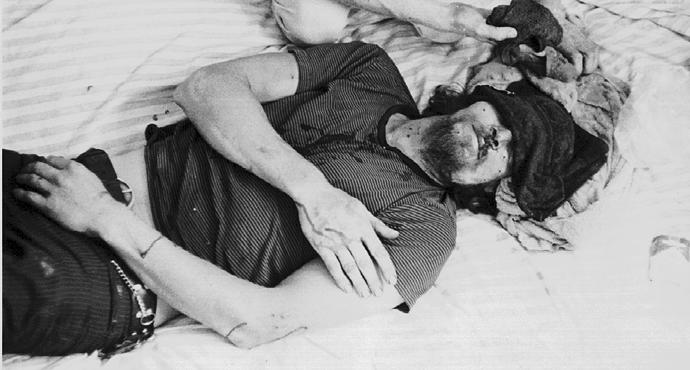
Photo: Kathryn Bigelow.
About 20 minutes after Alan Blanchard was shot.
Source: http://www.peoplespark.org/69gall6.html
We continued running south and stopped a little past Dwight Way in front of a 'finish it yourself' furniture store to collect our thoughts. As we stood there, we saw the police setting up what looked like a big gun on a tripod, which turned out to be a pepper gas cannon. As the police were starting to point it at the crowd, something happened, causing the cannon to trigger and fire some sort of explosive.
Whatever it fired, it hit a car about 10 feet away from us, in the back window and exploded, causing the car to burst into flames.

Photo: Ed Krishner
Source: http://www.peoplespark.org/69gall4.html
We ran around the corner on Dwight Way and headed East, but no matter which way we headed, the police forced us back to Telegraph Avenue.
As we were running south on Telegraph Avenue, again, we passed a used car lot and I remembered there were stairs in the back of the lot that led to the next street.
We ran up the steps and along side of the large apartment building (below picture). When we got to the street, we saw more police headed our way, so we ducked into the garage of that large apartment building, went to the back, and hid underneath a large panel truck.

Photo: Ron Stinnet
Source: http://www.peoplespark.org/69gall5.html
We lay on the cement floor, for hours, waiting for the darkness of night and the effects of the 'orange juice' to wear off.
When it got dark, we snuck through backyards, back to the house from where we had started, and I will never forget my 'imposed' May 15, 1969 People's Park experience; it caused me to become "active".
For those who know me, it should be easy to locate me in this picture, taken on May 19, 1969... "By this time THEY had pissed me off and I put my body on the line!"

Photo: Dick Corten
Source: http://www.peoplespark.org/69gall8.html
Clicking here will take you to the beginning of the pictorial history of "People's Park" starting with, "Making the Park - May 1969".
Reference: Welcome to a Celebration of People's Park Source: http://www.peoplespark.org/ [click to visit].
History Page: http://www.peoplespark.org/history.html [click here].
During 1970 the murders at Jackson State [click to read] & Kent State [click to view picture story] occurred.
In my opinion, the People's Park, Jackson State, and Kent State student murders, by Republicans, were what caused "War Babies" to retreat to the safety of their middle class, parental, Victorian, upbringing.. the same ones who later evolved into a 'Prozac Nation' [click to read].
Permalink = http://www.flyingsnail.com/Scrapbook/page008.html
Rainbow Puddle - Stellar Light Shows
7 Walkers - He's Gone (Live at the Silo 12-31-2011)
http://www.youtube.com/watch?feature=player_embedded&v=MQ_yjKAb9fA#
Keith Lampe - Co-Founder of YIPPIE and Progressive Activist Groups
Owned & Operated
http://www.youtube.com/watch?v=njSV5LtVmR4
RIP MCA - A tribute to Adam Yauch. Hollywood Bowl, 4 May 2012
Freedom of information: my monstrous idea will keep corporate tyrants at bay
Extending transparency laws to the private sector would make the likes of News International think twice before misbehaving
George Monbiot, guardian.co.uk, Monday 7 May 2012 20.37 BST, Article history, Article Source

Illustration by Daniel Pudles
Modern government could be interpreted as a device for projecting corporate power. Since the 1980s, in Britain, the US and other nations, the primary mission of governments has been to grant their sponsors in the private sector ever greater access to public money and public life.
There are several means by which they do so: the privatisation and outsourcing of public services; the stuffing of public committees with corporate executives; and the reshaping of laws and regulations to favour big business. In the UK, the Health and Social Care Act extends the corporate domain in ways unimaginable even five years ago.
With these increasing powers come diminishing obligations. Through repeated cycles of deregulation, governments release big business from its duty of care towards both people and the planet. While citizens are subject to ever more control – as the state extends surveillance and restricts our freedom to protest and assemble – companies are subject to ever less.
In this column I will make a proposal that sounds – at first – monstrous, but I hope to persuade you is both reasonable and necessary: that freedom of information laws should be extended to the private sector.
The very idea of a corporation is made possible only by a blurring of the distinction between private and public. Limited liability socialises risks that would otherwise be carried by a company's owners and directors, exempting them from the costs of the debts they incur or the disasters they cause. The bailouts introduced us to an extreme form of this exemption: men like Fred Goodwin and Matt Ridley are left in peace to count their money while everyone else must pay for their mistakes.
So I am asking only for the exercise of that long-standing Conservative maxim – no rights without responsibilities. If you benefit from limited liability, the public should be permitted to scrutinise your business.
Companies already have certain obligations towards transparency, such as the publication of financial statements and annual reports. But these tell us only a little of what we need to know. In News International's annual report, you will find none of the information disclosed at the Leveson inquiry, though it is of pressing public interest. In fact it is only due to a combination of the Guardian's persistence and pure chance (the discovery that Milly Dowler's phone had been hacked) that we know anything about the wide-ranging assault on democracy engineered by that company.
Privatisation and outsourcing ensure that private business is, or should be, everyone's business. Private companies now provide services we are in no position to refuse, yet, unlike the state bodies they replace, they are not subject to the Freedom of Information Act. The results can be catastrophic for public accounts.
Just as the Blair government did while imposing the disastrous private finance initiative, the Bullingdon boys now shield their schemes from public scrutiny behind the corporate information wall. Companies are once again striking remarkable deals, hatched in secret, at the expense of taxpayers, pupils and patients. Last week, for example, we learned that Circle Healthcare will be able to extract millions of pounds a year from a public hospital, Hinchingbrooke, which is in deep financial trouble. Crucial information about the deal remains secret on the grounds of Circle's "commercial confidentiality".
The principle of corporate transparency is already established in English law. The Freedom of Information Act has a clause enabling the government to extend it to companies with public contracts. Unsurprisingly, it has not been exercised. The environmental information rules of 2004 define a public authority as any body providing public services, which includes corporations. Why should this not apply universally?
The Campaign for Freedom of Information points out that the Scottish government almost adopted this idea: it proposed extending the transparency laws to major government contractors. But though this plan was overwhelmingly popular, it was dropped last year on the grounds that the contractors were opposed to it. (Who would have guessed?) South Africa, by contrast, provides a general right of access to the records of private bodies. The ANC, aware of how corporations assisted apartheid, recognises that the state is not the only threat to democracy.
Freedom of information is never absolute, nor should it be. Companies should retain the right, as they do in South Africa, to protect material that is of genuine commercial confidentiality; though they should not be allowed to use that as an excuse to withhold everything that might embarrass them. The information commissioner should decide where the line falls, just as he does for public bodies today.
The purpose of this monstrous proposal is not just to shine a light into the rattling cupboards of private companies, but to change the way in which they behave. A body that acts as if the world is watching presents less of a threat to the public interest than a body that knows it won't get caught. Would News International have acted as it did if its emails could have been revealed as a matter of course rather than a matter of chance? If it is true that "governments don't rule the world, Goldman Sachs rules the world", should we not be entitled to know what Goldman Sachs is up to? Is that not the only means we have of preventing its unelected power from becoming tyrannical?
I realise that it is not a good time to be making this request: far from extending our transparency laws, Cameron hints that he wants to roll them back. But unless we decide what we want and how we mean to obtain it – however remote it might now seem – we have no means of making social progress. If we are to reclaim power from the corporations that have seized it, first we need to know what that power looks like.
• A fully referenced version of this article can be found at www.monbiot.com - Twitter: @GeorgeMonbiot
Ever notice devices searching for intelligent life point away from Earth?
Mike Wilhelm & Hired Guns
Thursday, May 3, 2012 - Presidio Yacht Club
Monday, May 7, 2012 - Blue Wing Saloon
Magnitude 4.5 Earthquake 3 miles E of The Geysers, CA
201205.05 - 09:23:23 UTC
- USGS Report


Amestizo - BLOG
1. Life isn't fair, but it's still good.
2. When in doubt, just take the next small step.
3. Life is too short – enjoy it.
4. Your job won't take care of you when you are sick. Your friends and family will.
5. Pay off your credit cards every month.
6. You don't have to win every argument. Stay true to yourself.
7. Cry with someone. It's more healing than crying alone.
8. It's OK to get angry with God. He can take it.
9. Save for retirement starting with your first paycheck.
10. When it comes to chocolate, resistance is futile.
11. Make peace with your past so it won't screw up the present.
12. It's OK to let your children see you cry.
13. Don't compare your life to others. You have no idea what their journey is all about.
14. If a relationship has to be a secret, you shouldn't be in it.
15. Everything can change in the blink of an eye. But don't worry; God never blinks.
16.. Take a deep breath. It calms the mind.
17. Get rid of anything that isn't useful. Clutter weighs you down in many ways.
18. Whatever doesn't kill you really does make you stronger.
19. It's never too late to be happy. But it’s all up to you and no one else.
20. When it comes to going after what you love in life, don't take no for an answer.
21. Burn the candles, use the nice sheets, wear the fancy lingerie. Don't save it for a special occasion. Today is special.
22. Over prepare then go with the flow.
23. Be eccentric now. Don't wait for old age to wear purple.
24. The most important sex organ is the brain.
25. No one is in charge of your happiness but you.
26. Frame every so-called disaster with these words 'In five years, will this matter?'
27. Always choose life.
28. Forgive but don’t forget.
29. What other people think of you is none of your business.
30. Time heals almost everything. Give time time.
31. However good or bad a situation is, it will change.
32. Don't take yourself so seriously. No one else does.
33. Believe in miracles.
34. God loves you because of who God is, not because of anything you did or didn't do.
35. Don't audit life. Show up and make the most of it.
36. Your children get only one childhood.
37. All that truly matters in the end is that you loved.
38. Get outside every day. Miracles are waiting everywhere.
39. If we all threw our problems in a pile and saw everyone else's, we'd grab ours back.
40. Envy is a waste of time. Accept what you already have not what you need.
41. The best is yet to come...
42. No matter how you feel, get up, dress up and show up.
43. Yield.
44. Life isn't tied with a bow, but it's still a gift."
By: You Gotta Believe
Jedi religion belongs in the star systems of George Lucas's mind
It may be Star Wars day (May the fourth be with you), but how seriously should we take the growing church of Jediism?
Matthew Cresswell, guardian.co.uk, Friday 4 May 2012 05.42 EDT, Article history, Article Source

Jedi Master Yoda in a scene from Star Wars Episode III: Revenge of the Sith. Photograph: Ho/Reuters
Today is Star Wars Day, being May the Fourth. (Say the date slowly, several times.) Around the world, film buffs, storm troopers and Jedi are gathering to celebrate one of the greatest science fiction romps of all time. It would be easy to let the fan boys enjoy their day and be done with it. However, Jediism is a growing religion in the UK. Although the results of the 2001 census, in which 390,000 recipients stated their religion as Jedi, have been widely interpreted as a pop at the government, the UK does actually have serious Jedi.
For those of you who, like BBC producer Bill Dare, have never seen Star Wars, the Jedi are "good" characters from the films. They draw from a mystical entity binding the universe, called "the Force". Sporting hoodies, the Jedi are generally altruistic, swift-footed and handy with a light sabre. Their enemies, Emperor Palpatine, Darth Vader and other cohorts use the dark side of the Force. By tapping into its powers, the dark side command armies of demented droids, kill Jedi and are capable of wiping out entire planets.
This week, Chi-Pa Amshe from the Church of Jediism in Anglesey, Wales, emailed me with some responses to questions. He said Jediism was growing and that they were gaining hundreds of members each month. The church made the news three years ago, after its founder, Daniel Jones, had a widely reported run-in with Tesco.
Chi-Pa Amshe, speaking as a spokesperson for the Jedi council (Falkna Kar, Anzai Kooji Cutpa and Daqian Xiong), believes that Jediism can merge with other belief systems, rather like a bolt-on accessory.
"Many of our members are in fact both Christian and Jedi," he says. "We can no more understand the Force and our place within it than a gear in a clock could comprehend its function in moving the hands across the face. I'd like to point out that each of our members interprets their beliefs through the prison of their own lives and although we offer guidance and support, ultimately like with the Qur'an, it is up to them to find what they need and choose their own path."
Meeting up as a church is hard, the council explained, and members rely heavily on Skype and Facebook. They have an annual physical meeting, "where the church council is available for face-to-face questions and guidance". They also support charity events and attend computer gaming conventions.
Meanwhile, in New Zealand, a web-based group called the Jedi Church believes that Jediism has always been around.
It states: "The Jedi religion is just like the sun, it existed before a popular movie gave it a name, and now that it has a name, people all over the world can share their experiences of the Jedi religion, here in the Jedi church."
There are many other Jedi groups on the web, although Chi-Pa Amshe said some were "very unpleasant". The dark side, perhaps.
Analysis of all six films reveals echoes of many religions in the Force. Star Wars is, in essence, a type of multi-faith casserole. Christianity features heavily, for example. This is manifested in Anakin Skywalker's supposedly immaculate conception, by phrases such as "May the Force be with you" and an overarching redemption theme. Yoda critiques Luke for his lack of faith. "Try not. Do. Or do not. There is no try."
Judaism is prevalent in the constant tensions between good and evil, loyalty and fatherhood. The religious ideology of Buddhism is there, focusing on the art of meditation and reducing the passions that taint the soul. Meanwhile the Hindu concept of Om, representing a power present in all things, is never far away. In The Empire Strikes Back, Master Yoda explains the Force. "My ally is the Force. And a powerful ally it is. Life creates it, makes it grow. Its energy surrounds us and binds us. Luminous beings are we, not this crude matter."
George Lucas claims that Joseph Campbell's book The Hero With a Thousand Faces was a major influence behind the Force's creation. In it Campbell draws parallels between the world's myths, arguing that they are all part of one "monomyth". In an interview with Bill Moyers, in 1999, published in Time magazine, Lucas said he created the Force as a device to awaken spirituality in young people. "Not having enough interest in the mysteries of life to ask the question, 'Is there a God or is there not a God?' – that is for me the worst thing that can happen." However, he said he never intended Star Wars to have a religious following. "I hope that doesn't end up being the course this whole thing takes," he told Moyers, adding that he would hate living in a secular world where entertainment passed for people's religious experience.
I warmed to Chi-Pa Amshe of the Church of Jediism. I liked the way he signed his emails with MTFBWY – "May the Force be with you". I was surprisingly comforted by it. However, I remain sceptical. Jediism belongs in the star systems of Lucas's mind. For me, having one gigantic monomyth in place of distinct religious or secular systems sounds like chaos. In the 70s and 80s, when the first three "real" Star Wars films were made, the Force was tapping into the zeitgeist, basking in a postmodern world where all religions led to God. Perhaps another reason the later three films were never as popular is that fewer people buy into that worldview anymore.
A cartoon by Xeth .....

Andre Rieu on violin, Radio City Music Hall, NYC, July 29, 2006
http://www.youtube.com/embed/e-y581HdWfY?rel=0
So you're an organ donor on Facebook – but at what cost?
It's difficult to quantify how much your data, freely shared on Facebook, can be worth to brands who anticipate every move
Arwa Mahdawi, guardian.co.uk, Wednesday 2 May 2012 07.17 EDT, Article history, Article Source
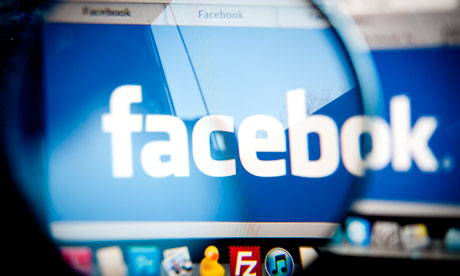
Facebook is encouraging people to share their organ donor status and donation
stories to help address the shortfall in donors. Photograph: Timur Emek/AP
One healthy intestine courtesy of a US transplant centre: $1,206,800. Having the same centre insert a new heart: $997,700. Opting for the heart/lung combo-pack: $1,248,400. Sharing your donor status on Facebook: priceless. Or so the social network, which on Tuesday added an organ donation status option to its timeline view, would have you believe.
Facebook's "life-saving" new feature aims to address a critical shortfall of donors by turning organ donation into an accepted social norm. People are encouraged to increase awareness of the issue by sharing, not just their donor status, but also the details around their becoming a donor along with donation stories. No doubt you will soon be able to tag your superfluous kidney in the new owner's photo albums.
I don't mean to sound facetious. An organ transplant in the US may cost an arm and a leg, but Facebook's effort to at least ensure a sufficient level of donors is laudable. Unless you're a Jehovah's Witness or the Republican governor of Arizona, it's pretty difficult to disagree with encouraging organ donations. Of course, there are those suspicious of how the principle might work in practice. Commenting on a New York Times article about the issue, Myrtle Mae of Milwaukee states: "too much information. next some wack job will be killing people they track on Facebook and selling their vital organs."
It seems unlikely that a spontaneous status update will lead to your waking up in an ice-bath. But Myrtle may have a point. "Too much information" encapsulates a not-uncommon exasperation towards Facebook's seemingly insatiable appetite for its users' vital statistics. Not to mention the company's apparent ambition to implant itself into every aspect of our lives – and afterlives. There is a missionary zeal behind Facebook's latest foray into, as the New York Times terms it, "social engineering", which does not sit quite comfortably.
After all, no matter how good Facebook's intentions may be, sharing your data with the social network additionally entails releasing that data to an unknown sum of other corporations. Those to whom you have granted explicit access to your information through tools like Facebook Connect, and those to whom Facebook sells your information for the revenue that helps it keep the site free.
Free of charge but, crucially, not free of cost. In choosing to use things like Facebook and Gmail we are making the tacit (and often unconscious) statement that our personal information is a price we are willing to pay in exchange for relevant services we don't have to shell out for. What results is a massive data stock, which, when analysed, means brands can potentially understand us better than we understand ourselves. Google can serve you up ads that are frightening in their precision, US online store Target can figure out your daughter is pregnant before you do, and credit card companies are able to predict your divorce by two years. It's scary stuff. Or is it?
When it comes to sharing our most intimate details with brands, research suggests that we're not quite sure how we feel. A Future Poll study conducted in March 2012 found that while 82% of people in the UK were concerned about the way their personal information was used online 84% of people would share their personal information with brands in exchange for a tailored service. Furthermore, 34% of people would be willing to share details about their health with brands in exchange for better service, a figure that increases to 49% once cash or rewards are offered. "To put this 49% in to perspective," Future Poll analyst James Kennedy told me, "it is a significantly higher proportion than those who said they would share details of what websites they look at (36%) or their personal incomes (27%)."
People, it seems, are uncertain what value to place on their data. And out of that uncertainty has emerged a lucrative new market for services that afford consumers a semblance of control over the monetisation of their personal information. Sites such as Allow let users choose which companies are permitted to contact them and gives them compensation for their data.
How much, then, are you worth? The economics are far from straightforward. While we can quantify the costs of transferring a functioning intestine from one body to another, calculating the value of our more intangible assets is a far more complicated proposition. But one thing is clear: no matter how invaluable sharing information like your donor status online may be, it is not priceless. Rather, it comes at a very real cost. The problem is, no one can be sure what that is yet.

Facebook's Organ Shopping Guide for the Rich One Percent

JOIN THE OCCUPY GUITARMY MAY 1, 2012
Occupy Guitarmy Hoping to Make Music a Central Part of May Day
By Sam Levin, The Village Voice, Sun., Apr. 29 2012 at 5:29 PM, Article Source
You can't arrest a song!
Willie Nile "One Guitar"
That's part of the idea behind one faction of a large network of demonstrations and protests planned for May Day -- the day of action this Tuesday that some suspect will push Occupy Wall Street into the spotlight again in a major way.
The group Occupy Guitarmy has actions planned all day Tuesday and held a rehearsal this afternoon for anyone who wanted to show up in Tompkins Square Park.
We thought we'd stop by and chat with some of the folks behind this portion of OWS and May Day to hear what their goals are for Tuesday.
A few of them gathered by 9th Street and Avenue B this afternoon with guitars, though things were pretty quiet when the Voice got there around 3:30 p.m.
Alphonzo Terrell, 29, and a co-organizer with Occupy's music working group, told us that Occupy Guitarmy is about making music a central, nonviolent part of the day. "Music has always been...a part of every major social movement," he said, pointing to one of his favorite expressions that says that renaissances of humanity always come with a song.
"This is a really exciting platform and space for like-minded musicians to come together for something that really matters," he said.
Goldi, another occupier behind Occupy Guitarmy in the park today, said that bringing music to May Day is a way to focus on the message of OWS and not on tensions with the NYPD. "We don't have guns, just one guitar," he said, with a laugh.
The two recited lyrics to us from one song that they plan on singing in a large jam session on Tuesday: "I'm a soldier marchin' in an army / Got no gun to shoot / But what I got is one guitar."
"This is the biggest celebration of our history of Occupy Wall Street," Goldi said of May Day. "[We want] to have music at the center of that instead of violence...We're hoping the NYPD will dance along with us, instead of harass us."
He added: "You can't arrest a song. You can't beat a song with battons."
It'll be interesting to see how much the arrests and conflicts with law enforcement on Tuesday end up shaping the day and the media coverage of it -- a question that is sometimes a topic of debate among those participating in OWS. On one hand, massive arrests, like the ones that took place in March when OWS re-occupied Zuccotti Park, do sometimes lead to more mainstream media attention. But others within the movement sometimes feel that these clashes with the NYPD take away from the message of Occupy Wall Street, which is about economic inequality.
"Music is an important outreach tool," Goldi said, noting that it gets more people who might not traditionally be involved to participate. "We want to fill the streets with music and...people."
The group is assembling at noon at Bryant Park by the Gertrude Stein statue. They are marching from around 2-4 p.m. to Union Square where they will play music until 5:30 p.m. At that point, they are planning on joining the larger Occupy demonstrations with immigrant and labor groups to head to Wall Street. Guitarist Tom Morello, from Rage Against the Machine, will be supporting them along the way, and the two we chatted with today said they think Ben Harper and others are likely to join.
Terrell said that Tuesday on the whole is about bringing more people into Occupy and reminding folks that the movement hasn't gone anywhere.
"The common myth is that just because Occupy is not in the press, we don't exist," he said.
Goldi added, "We are working tirelessly. We do exist. In fact the movement's never been stronger."
Bruce Springsteen & Tom Morello - The ghost of Tom Joad
Amestizo - BLOG
Terence Mckenna - Culture is an intelligence test14 signs that the collapse of our modern world has already begun
Monday, May 02, 2011, by Mike Adams, the Health Ranger, Editor of NaturalNews.com, Article Source
(NaturalNews) A lot of people believe the world as we know it is going to end on December 23, 2012. Nonsense, I say. The far more honest answer is that the end of the world as we know it has already begun. And it doesn't mean the end of the world; it means the closing of one era and the birth of a new one. It is a transition between the ages. This particular transition, however, promises to be the most tumultuous and costly transition humankind has ever seen.
But don't wait around for December 2012 to look for the signs. Here are 14 signs that the world as we know it is unraveling right now. We are living through the end of one era and the birth of a new one. In the future, they'll look back and call this all one moment in history, but when you're living through it, it seems to move forward at almost a snail's pace. But make no mistake: We are living through the opening chapters of the end of the world as we know it, and on the other side of all this will emerge a new world that's very different from the one we know today.
#1 - Tornadoes, hurricanes, earthquakes and tsunamis - At first it seemed like a fluke; but now it's a pattern. The weather is becoming increasingly extreme. Over 120 tornadoes recently struck the U.S. Midwest. Texas is on fire and suffering through an extreme drought. And where there aren't fires and droughts, there are floods. This is only the beginning... watch for more freak weather over the next 18 months.
#2 - The silence of the bees - Colony Collapse Disorder continues to accelerate across North America. We already know it's being caused in part by chemical pesticides (and possibly worsened by GMOs), but the chemical industry is engaged in a full-on cover-up to deny this truth while the pollinators of our world suffer a devastating population collapse.(http://www.naturalnews.com/028218_pesticides_honeybees.html)
#3 - The failure of nuclear science - The Fukushima catastrophe proves one thing: Scientists are dangerously arrogant in their planning of large-scale projects, and they fail to account for the awesome power of Mother Nature. Nuclear science promised us clean, green energy -- but now it has delivered a silent, invisible poison that's infecting our planet.
#4 - The vicious pursuit of Wikileaks - In an age of such rampant deceit, there is no room for the truth. So those who tell the truth (Wikileaks) are viciously pursued as if they were criminals.
#5 - The rise of the medical police state - The armed SWAT raids on Maryanne Godboldo in Detroit are only the beginning(http://www.naturalnews.com/032091_Maryanne_Godboldo_gun_rights.html).
The truth is that the medical system uses guns to force its vaccines and chemotherapy onto children and teens across America. The medical system has become so utterly useless, corrupt and dangerous that it must actually invoke guns in peoples' faces just to "convince" people to take its medicine. This is a gunpoint-enforced medical monopoly that exists as a threat to our health and our freedoms.
#6 - The increasing frequency of food shortages and crop failures - Notice the spike in food prices? That's just the beginning: Food prices will continue to skyrocket in the years ahead due to extreme weather, the loss of pollinators and the global contamination of crops by GMOs. Real food is becoming increasingly scarce in our world. You might want to think about starting a home garden...
#7 - The runaway destruction of the world by energy companies - The radioactive fallout from Fukushima isn't the only way in which energy companies are destroying our world: Don't forget about the Deepwater Horizon and the massive oil spill in the Gulf of Mexico -- a spill that isn't over, by the way. They're still spraying Corexit in the Gulf one year later!
#8 - The continued GMO contamination of our planet - This may be the worst chapter in the coming collapse: The widespread genetic pollution of our planet through GMOs. This is a crime against nature and against humanity. It is a "gene spill" that may never be contained as it spreads its deadly DNA across the world's food crops, leading to crop failures and starvation(http://www.naturalnews.com/032167_gene_spill_GMOs.html).
The use of GMOs is the closest thing to "Satanic" that you'll find in modern agriculture. The agenda behind this is pure evil.
#9 - The tyranny and criminal crackdowns targeting real food (raw milk) - When you can't even sell honest farm food to your neighbors without being targeted and arrested by the cops, something is terribly wrong with the world. But this is happening today, all across America. Now the feds are even targeting the Amish!(http://www.naturalnews.com/029322_raw_milk_Amish.html)
#10 - The escalation of the counterfeiting of the money supply - In a failed economic system approaching collapse, the moronic leaders can only think of "solutions" that actually accelerate their own downfall. The runaway counterfeiting of money by the Federal Reserve (with its "quantitative easing" and other counterfeit methods) is a classic sign that the end of our current system is fast approaching. The economic insanities are obvious to anyone who can still do math.
#11 - The plummeting intelligence of the masses - One of the most disturbing signs that we're already in the collapse is the great dumbing-down of the masses. The drooling, CNN-watching television zombies who dominate our landscape offer absolutely nothing of value to the world. They are the "mindless consumers" who get vaccinated, watch television and eat processed, pasteurized junk food. They're on psychiatric meds and believe everything the government tells them. Most of these people, of course, won't make it through the collapse.
#12 - The complete and utter fabrication of the mainstream news - Much of the mainstream news is now utterly and completely fabricated these days: The reporting on Obama's long-form birth certificate; the news about the war in Libya; the coverage of the economy and the U.S. debt... it's all so utterly false and unbelievable that an intelligent person watching the news can't help but explode with laughter. It is a sign of this collapse that the information sources relied upon by the masses are unable to report the truth anymore and must resort to weaving politically expedient fictions on everything from health care and medicine to the fate of the U.S. dollar itself.
#13 - The ongoing pharmaceutical pollution of our world - Beyond the GMO contamination and the radiation contamination of our world, we are also experiencing the mass pharmaceutical contamination of our planet. It's not just the pharma factories that dump their products into the rivers(http://www.naturalnews.com/025415_water_Big_Pharma_chemicals.html);
it's also the fact that well over half the population is now taking drugs almost daily, and those drugs pass right through their bodies and end up in the water supply where they contaminate the fish
(http://www.naturalnews.com/025933.html).
Even beyond that, the drugs end up in the human sewage sludge that's packaged and sold as "organic soil!"
(http://www.naturalnews.com/029504_organic_biosolids_toxic.html)
#14 - The radioactive contamination of the global food supply - Here's one that's really insidious: The global food supply is now contaminated with the radioactive fallout from Fukushima. We're told the levels are "low," but we're not told the truth of how radioactive cesium isotopes persist in the food supply for centuries. How is the human race going to survive its exposure to CT scans, radioactive food, chest X-rays, TSA body scanners and even the secret DHS mobile X-ray vans that can penetrate your body with X-rays as you're walking into a football stadium? The total radiation burden on the human race is now reaching a point of mass infertility. That may be the whole idea, actually.It's accelerating, too
December, 2012 may be a useful date as some sort of mid-point in the crisis, or perhaps as a trigger date for some further acceleration of society's rapid unraveling. But make no mistake: We are already living in the collapse of our modern world. And you have a front-row seat! (Exciting, huh?)
Think about what's happening around you these days. These are the signs of the last, desperate clutches of a civilization built on utterly unsustainable practices that don't value life on our world. These are the End Times of the corporate oligarchy; the monopolistic for-profit corporation machine that destroyed everything in our world in exchange for a slightly higher quarterly earnings report.
In the quest for more money, humanity has sacrificed its food supply, its pollinators, it's oceans, forests and soils. Greed-driven humans have used other humans as medical experiments and cannon fodder. We have created wars to sell more bombs, and we've invented disease to sell psychiatric chemicals.
These are the practices of a failed civilization... and one whose days are numbered. Watching it all crumble is far more interesting than watching it continue its destructive ways, of course, because those of us paying attention realize a future civilization must rise up in the place of this one after the collapse.Say goodbye to the false power of institutions
It would be nice if our future leaders remembered the importance of liberty and personal responsibility, of course. The answer to all the world's problems, it turns out, is freedom -- freedom in medicine, freedom in economics and freedom from government tyranny.
Because, let's face it: The root cause of most these problems that are bringing down our world right now is bad government. It is bad government (Big Government) that approved the GMOs. Bad government enforced the medical monopoly and allowed the pesticides to kill the honeybees. Bad government drove us into inescapable debt and costly foreign wars. Bad government outlawed health freedom and protected the monopolistic practices of the food companies, drug companies and chemical companies.
The downfall of modern human civilization is, as you probably guessed, also the downfall of the very idea that Big Government creates a better society. Because if there's one idea that needs to stay dead after the collapse, it's the idea that We the People somehow need another group of people (government workers) to live off our hard work while hounding us with their false authority, directing every little detail of our lives.
What we need in our world isn't more government, but more freedom. If we had freedom, integrity and personal responsibility, we wouldn't even be facing the global collapse that has already begun. But alas, the human race is an infant species and it must learn some lessons the hard way, it seems.
This lesson should be long remembered: If you let the corporations, the banks and the governments run your economies, your farms and your lives, they will enslave you and steal your future while you sleep; they will inject silent poisons into the very world around you until you awaken one day to find that all you created has been destroyed. They will promise you paradise but deliver only death. Beware of any entity that is not a living person -- no government, no institution, no corporation has a soul, nor a heart, nor a conscience. They are forces of organized destruction that decimate those things we hold dear while delivering to us things that will only enslave us or harm us.
Beware the corporation; the government; the non-profit institution working as a front group for private industry. Never allow yourself to be ruled over by any institution which exists only as a fictional construct organized from the projection of human greed.
And be ready for the acceleration of the collapse. Because if you are reading this, you are the future of the human race. You have a duty to stay alive, keep your genes intact, and be around to help create the Next Society after this one crumbles into history.
Cab Calloway - Reefer Man
Mike Wilhelm - Charlatans, Flamin' Groovies, Loose Gravel, and more
Mike Wilhelm & Hired Guns
May 3, 2012 - Presidio Yacht Club
May 7, 2012 - Blue Wing Saloon
Rock stars at school - in pictures
As a new photograph of future Rolling Stones Mick Jagger and Keith Richards at primary school emerges, can you work out who these future megastars are from their high-school yearbook pictures? And just why are the images so compelling? - Click to View Photographs

Eddie Van Halen - guardian.co.uk, Sunday 29 April 2012 20.00 BST
HSUS: Lawyers In Cages - via Phoenix
To pull a boner
Cispa cybersecurity bill passed by House of Representatives
Republican-controlled House defies Obama over legislation to prevent electronic attacks on US
Associated Press in Washington, guardian.co.uk, Friday 27 April 2012 10.12 BST, Article history, Article Source
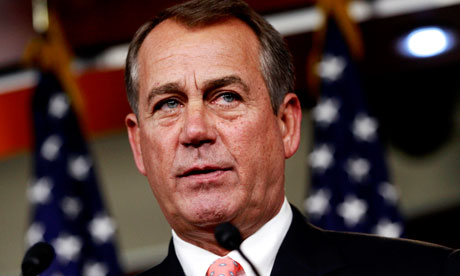
House speaker John Boehner: 'The White House believes the government ought to control the internet.' Photograph: Jacquelyn Martin/AP
The House of Representatives has ignored objections from Barack Obama's administration and approved legislation aimed at helping to thwart electronic attacks on critical US infrastructure and private companies.
On a bipartisan vote of 248-168, the Republican-controlled House backed the Cyber Intelligence Sharing and Protection Act (Cispa), which would encourage companies and the federal government to share information collected on the internet to prevent electronic attacks from cybercriminals, foreign governments and terrorists.
"This is the last bastion of things we need to do to protect this country," Republican Mike Rogers, chairman of the House intelligence committee, said after more than five hours of debate.
More than 10 years after the September 11 terror attacks in 2001, proponents cast the bill as an initial step to deal with an evolving threat of the internet age. The information-sharing would be voluntary to avoid imposing new regulations on businesses, an imperative for Republicans.
The legislation would allow the government to relay cyber threat information to a company to prevent attacks from Russia or China. In the private sector, corporations could alert the government and provide data that could stop an attack intended to disrupt the country's water supply or take down the banking system.
The Obama administration has threatened a veto of the House bill, preferring a Senate measure that would give the homeland security department the primary role in overseeing domestic cybersecurity and the authority to set security standards. That Senate bill remains stalled.
The Republican House speaker, John Boehner, said the administration's approach was misguided.
"The White House believes the government ought to control the internet, government ought to set standards and government ought to take care of everything that's needed for cybersecurity," Boehner told reporters at his weekly news conference. "They're in a camp all by themselves."
Faced with widespread privacy concerns, Rogers and Republican CA "Dutch" Ruppersberger , the intelligence panel's top Democrat, pulled together an amendment that limits the government's use of threat information to five specific purposes: cybersecurity; investigation and prosecution of cybersecurity crimes; protection of individuals from death or serious bodily harm; protection of minors from child pornography; and the protection of national security.
The House passed the amendment by 410 votes to three.
The White House, along with a coalition of liberal and conservative groups and lawmakers, strongly opposed the measure, complaining that Americans' privacy could be violated. They argued that companies could share an employee's personal information with the government, data that could end up in the hands of officials from the National Security Agency or the defence department. They also challenged the bill's liability waiver for private companies that disclose information, complaining it was too broad.
"Once in government hands, this information can be used for undefined 'national security' purposes unrelated to cybersecurity," a coalition that included the American Civil Liberties Union and former conservative Republican representative Bob Barr, lawmakers said on Thursday.
Echoing those concerns were several Republicans and Democrats who warned of potential government spying on its citizens with the help of employers.
"In an effort to foster information sharing, this bill would erode the privacy protections of every single American using the internet. It would create a 'wild west' of information sharing," said Republican Bennie Thompson of Mississippi, the leading Democrat on the House homeland security committee.
Republican representative Joe Barton said: "Until we protect the privacy rights of our citizens, the solution is worse than the problem."
Countering criticism of Big Brother run amok, proponents argued that the bill does not allow the government to monitor private networks, read private emails or close a website. It urges companies that share data to remove personal information.
"There is no government surveillance, none, not any in this bill," Rogers said.
Among the amendments the House approved was one by Republican Justin Amash that put certain personal information off limits: library, medical and gun sale records, tax returns and education documents.
"I don't know why the government would want to snoop through library records or tax returns to counter the cybersecurity threat," Amash said.
The House approved his amendment by 415-0.
Trumping any privacy concerns were the national security argument, always powerful in an election year, and Republicans' political desire to complete a bill that would then force the Democratic-led Senate to act.
The Obama administration backs a Senate bill sponsored by senators Joe Lieberman, an Independent, and Republican Susan Collins, that gives homeland security the authority to establish security standards.
However, that legislation faces opposition from senior Senate Republicans.
Arizona senator John McCain, the leading Republican on the Senate armed services committee, said during a hearing last month that the homeland security department was "probably the most inefficient bureaucracy that I have ever encountered" and was ill-equipped to determine how best to secure the nation's essential infrastructure. McCain has introduced a competing bill.
• This article was amended on Friday 27 April to correct a mistake in the headline. It originally said the bill had been passed by the Senate. This has been corrected.
The Daily Take: John Boehner
New Commemorative Pistol
Ruger is coming out with a new pistol in honor of members in the United States Senate and the House of Representatives. via Joe
It will be named the “Congressman”.

It doesn't work and you can't fire it!
Hulk Weed: Samuel L. Jackson Reveals the "Real" Hulk Origin Story via Phoenix
Steven Leech - Writer/Poet/D.J.
Merely a Table of Contents
POSTED BY Steven Leech AT 10:43 AM, SUNDAY, APRIL 22, 2012, Article Source
Below is the Table of Contents for my completed book, Valdemar's Corpse, about Delaware's secret literary history. It is more than a mere survey. It is a 106,491 word story of Delaware's literary legacy:
1. Introduction: Delaware’s 20th Century Griswold
2. John Lofland: Delaware’s First Literary Pariah
3. Two Articles by John Lofland While Living and Working in Baltimore
4. Lofland the Progressive5. The Milford Bard and the Mysterious Woman of his Final Romance
6. Two Tales from the Novels of Robert Montgomery Bird;
“Searching for the Body of Sheppard Lee,” and,
“The Confession of Ralph Stackpole, Horse Thief”7. Delaware Author George Alfred Townsend’s Novels about Slavery & Murder
8. George Alfred Townsend: Between Twain and Able
9. New Castle Hi-jinx; Charles Heber Clark’s Out of the Hurly-Burly
and Ella Middleton Tybout’s Poketown People10. Henry Seidel Canby & Christopher Ward:
Forerunners of Wilmington’s 20th Century Literary Movement11. The Novels of John and Mary Biggs and Poe’s Karma
12. Nothing Ends in Life: Mary Biggs’ Lily-Iron
13. The Great Gatsby’s Delaware Connection:
A Review of Gatsby, GATH, and Gault by David W. Meredith14. Bunny, The Judge and The Last Tycoon
15. Anne & Dillwyn Parrish, And The Roles of the Interloper
16. James Whaler, Wilmington’s Most Successful 20th Century Poet
17. Haunted by Home: The Life and Works of Charles Wertenbaker
18. Boojum’s Books: Green Peyton’s
Black Cabin and Rain on the Mountain, and Other Stories19. First Crash: The Earliest Literary Works of G. Peyton Wertenbaker
20. Victor Thaddeus' Unpublished Comic Opera, ‘ORRIBLE 'ARRY and THE COURT TIGER, and lost novella, LEO REX
21. Children in the Maelstrom: Two Post War Novels by Anne Parrish
22. Where Evil is Stronger Than Love: The Wartime Novels of Two Delaware Authors
23. The Patron Saint of Baynard Boulevard: A Personal View of the Life and Times of Wilmington Poet David Hudson
24. The Legacy of Delaware’s Poets and the Post World War II Poetry Movement
25. The Hoax Nobody Noticed
Sound interesting? Curious? Even if you might be interested or curious, you may never have the opportunity to read it. Valdemar's Corpse has been rejected by the University of Delaware Press twice, Oak Knoll Press twice, as well as by Greywolf Press and Schiffler Publishing Ltd. Most of it has been serialized in The Broadkill Review but not in sequence, so the "story" doesn't emerge. I don't even know how widely read those chapters have been. I can no longer afford to self publish. What should I do? Should I send files of the manuscript, along with selected pictures, to people who might be interested? I don't know who'd be interested or curious. Should I keep trying to find a publisher? How long will that take? I've done all this work and I'm really tired and sinking deeper into poverty. I'm frustrated that what I consider to be valuable information is not being made available, especially for the sake of discovery by others who never knew there was such a thing as a Delaware' secret literary history. Or should I conclude that no one's interested in past Delaware literary artists and give in to the prevailing amnesia? Could that be some reflection about the prevailing interest in current Delaware literature? Or should I conclude I've deluded myself with my own conceit, wasted my time, and just delete the file?
Prototype Quadrotor with Machine Gun
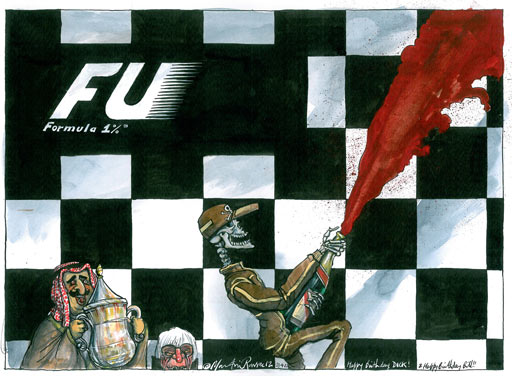
Martin Rowson on the Bahrain Grand Prix controversy - cartoon
Facebook May Trigger Eating Disorders, Says Study
By Adriana Lee on April 20, 2012 in Research, Article Source

A new study has found some users feel bad about themselves after looking at Facebook photos of their friends. - DIVERSE IMAGES/GETTY IMAGES
Facebook connects you. Disconnects you. You’re not using it enough. You’re using it too much. Better play it safe and balance that Facebook usage. But everything these days requires a Facebook login. And now it seems, with whatever else is going on with the Facebook phenomenon, there’s also a risk that it could trigger eating disorders, says a new study from The Center for Eating Disorders at Sheppard Pratt.
Of 600 participants ages 16–40, 51 percent had notable feelings of self-consciousness after looking at photos of themselves on Facebook. While 600 people isn’t an enormous sample group, it’s still difficult to overlook such a big percentage. Could the social network really be having an impact on so many people? Yes, says Dr. Harry Brandt, the director at the center. He chalks it up to technology and our hyper-connected lifestyles: “…it’s becoming increasingly difficult for people to remove themselves from images and other triggers that promote negative body image, low self-esteem, and may ultimately contribute to eating disorders.”
It would be simple to say, “Just don’t go in there, problem solved!” but that’s easier said than done. We can’t seem to resist logging in, with 80 percent of the respondents admitting to accessing Facebook at least once per day.
The study definitely takes a headline-grabbing position, but let’s add some perspective here: The results reveal that more than half of the participants felt insecure after seeing themselves on Facebook — not necessarily that they have full-blown eating disorders. If a person has a healthy sense of self-esteem and no other psychological or psychobiological factors, then he or she shouldn’t be vulnerable to “catching” the condition like some form of modern-day cooties. In other words, the social network can’t actually give people eating disorders or spread them around like a contagion.
However, for people who are at risk to begin with, this platform may be like a lightning rod that draws out or exacerbates their negative body image issues. After all, it’s pretty much a fixture of modern life, which makes it tough to ignore and — for these people — impossible not to obsess over. This obsession can spiral out of control, leading to problems that can further impact their body image, like a vicious cycle.
“When people become more concerned with the image they project online and less concerned with holistic markers of health in real life, their body image may suffer and they may even turn, or return, to harmful fad diets or dangerous weight-control behaviors,” adds Dr. Brandt. Can’t argue with that. But it’s also hard to overlook the fact that Facebook is being blamed for an awful load of things lately — from teenage depression to divorce. Is this just another study hopping on the “Facebook is evil” bandwagon?
We want to know what you think: Do you believe there are genuine risks associated with Facebook usage, or is this all just fear-mongering for attention’s sake? Weigh in.
[via NY Daily News, source The Center for Eating Disorders at Sheppard Pratt (PDF)]
Alerts + Notes from ~@~ Listed Below:
Punk Rock Exhibit, May 11 - June 8, 2012
Punk Rock Photographs and Posters featuring the band CRIME by James Stark
May 11 - June 8, 2012 - Reception Friday May 11, 2012 from 6 - 9:30pm
1234Go Records, 420 40th Street, Oakland, California 510-985-0325
Nanocopters, Smartbirds, and beyond: The coolest robot videos ever
The Flower, Animation by Haik Hoisington, http://www.blackmustache.com - Remembering 420
The Flower contrasts a utopian society that freely farms and consumes a pleasure giving flower with a society where the same flower is illegal and its consumption is prohibited. The animation is a meditation on the social and economic costs of marijuana prohibition. - http://www.youtube.com/watch?v=hMM_T_PJ0Rs
Why I'm suing the US government to protect internet freedom
The NDAA means the US military can put anyone under suspicion of being a terror threat and detain them for ever
Birgitta Jónsdóttir, guardian.co.uk, Wednesday 18 April 2012 10.00 BST, Article history, Article Source
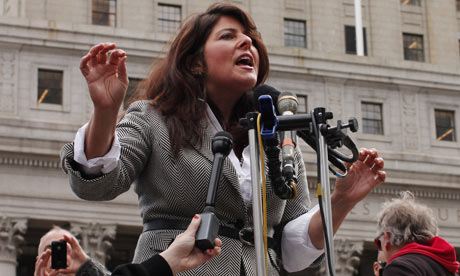
Political consultant Naomi Wolf speaks at a news conference in New York last month announcing a lawsuit against
indefinite detention provisions in the National Defense Authorization Act. Photograph: viewpress Vp/Demotix/Corbis
Freedom for most people is something sacred, and many have been willing to sacrifice their lives for it. It is not just another word, for we measure the health of our democracies by the standard of freedom. We use it to measure our happiness and prosperity. Sadly, freedom of information, expression and speech is being eroded gradually without people paying much attention to it. Freedom of movement is permitted within certain zones, freedom of reading is disappearing, and the right to privacy is dwindling with the increased surveillance of our every move.
When the world wide web came into being, it was an unrestricted, free flowing world of creativity, connectivity and close encounters of the internet kind. It was as if the collective consciousness had taken on material (yet virtual!) form and people soon learned to use it to work, play and gather. Today's social and democratic reform is born and bred online where people can freely exchange views and knowledge. Some of us old-school internet freedom fighters understood this value way before the web became such a part of our daily lives. One of them is John Perry Barlow, who in 1996 wrote a Declaration of the Independence of Cyberspace in a response to an attempt to legalise restrictions on this brand new world. In it he declares: "Governments of the industrial world, you weary giants of flesh and steel, I come from Cyberspace, the new home of mind. On behalf of the future, I ask you of the past to leave us alone. You are not welcome among us. You have no sovereignty where we gather."
Barlow inspired me and others to create the Icelandic Modern Media Initiative (IMMI), a parliamentary proposal unanimously approved by the Icelandic parliament in 2010, tasking the government to make Iceland a safe haven for freedom of information and expression, where privacy online would be as sacred and guarded as it is in the real world. The spirit of IMMI is in stark contrast with the serious attacks we are currently faced with. We have legal monsters like Acta, Sopa, Pipa and now Cispa; we have anti-terrorist acts abused to tear these liberties apart; we have armies of corporate lawyers scrutinising every bit of news prior to it getting out to us before we ever get to know the real stories that should remain in the public domain.
And that's just the tip of the iceberg. The US government legally hacks into other nations' parliamentary private social media data because it is stored on servers originating in the US, as in my Twitter case. The infamous EU data retention law is making us all into terrorist subjects by default, and now we have the newest addition in a dangerous cocktail of erosion of civil liberties online with the offline reality: meet the National Defense Authorization Act (NDAA), also known as the Homeland Battlefield Act. The American Civil Liberties Union (ACLU) describes it thus:
"For the first time in American history, we have a law authorising the worldwide and indefinite military detention of people captured far from any battlefield. The NDAA has no temporal or geographic limitations. It is completely at odds with our values, violates the constitution, and corrodes our nation's commitment to the rule of law."
Since the US department of justice is ploughing my private data and WikiLeaks (whom I volunteered for in 2010 by co-producing Collateral Murder) are defined by the US vice-president as cyberterrorists, I felt under direct threat when NDAA was passed. I have not been able to travel to the US for more than a year under advice from the Icelandic state department. The only way for me to go is on a UN visa (the same kind as Gaddafi and Hussein got when going to the UN) when I plan to attend the UN assembly later this year. Basically what NDAA means is that the US military can put anyone, anywhere under the suspicion of being a terror threat or an associate and detain you for ever, without you having access to a lawyer or a court. So I joined Chris Hedges, Noam Chomsky, Daniel Ellsberg and other activists in suing the United States government to stop the implementation of the NDAA. Naomi Wolf was kind enough to read my testimony at a US court last month, since I could not be there in person.
The good news is that cyberspace is full of hacktivists and our offline world has a growing Occupy movement, inspiring all of us into action, co-creating a different reality in the spirit of a true online and offline freedom.
Expect A Bumpy Ride In the Future
Earth and the Human body both require lubricants, pores, and gas vents.
Earth's pores and vents are being closed or tapped, lubricants are constantly being depleted, and this is being done for profit without consideration or regard for consequence.
Missing BBS Files - Some of the first Bulletin Board Systems in the United States
Curtis Spangler - The CommuniTree's First FairwitnessLet's look at some of the earliest electronic virtual communities. This kinship chart shows the origins of the first computer bulletin boards (BBSs) that supported social interaction. Prior to this moment, BBSs messages were organized by alphabetical order, or by date. BBSs were metaphors for physical bulletin boards... objects for the exchange of simple messages, not conversations. Now, in 1978 a group of people in Northern California designed a BBS that used message attachment protocols that facilitated conversations. As a metaphor for this structure they used a tree, firstly because it was based on a principle of computer science called binary tree protocol, and secondly because Northern California near Silicon Valley was a land of hot tubs, Eastern mysticism, and computer hackers, and the organicity that the word "tree" suggested was important to those hackers' worldview.
The story of the life and death of the first CommuniTree tells us how and why the later virtual community systems were designed. The original CommuniTree was designed with the idea that the community it facilitated would be completely free. Anyone could enter any sort of message. In fact, censorship was completely prohibited at the level of the code, of the Tree's program. It worked this way: First, the system operator was prevented from reading messages as they arrived. Second, messages were hard to remove once they were entered. Third, anything could be entered into the system, including so-called control characters, which are not part of the standard alphanumeric set and which can be used to control the operation of the host computer. Lastly, to make sure that no system operator could tamper with the system, the code was written in language called Forth, and not documented. Now Forth is a religion unto itself, and if you know anything about Forth you recognize that this makes the system a total black box -- it's impossible to know anything about how the code works.
CommuniTree went online in 1978. The kinds of conversations they had in there were of a high intellectual and spiritual character. They talked about new philosophies and new religions for post-Enlightenment humanity, the first time such conversations had taken place online.
Now, at the same moment Apple Computer had reached an agreement with the U. S. Government that in return for a tax break, Apple put computers into primary and secondary schools in the U.S., and some of those computers had modems. This meant that quite suddenly a lot of kids could get online. At first both boys and girls had access, but the boys quickly elbowed the girls out of the way -- high tech was men's work. The boys quickly found out CommuniTree's phone number and logged on. They were clearly unimpressed with the high intellectual level of the discourse on CommuniTree, and they expressed their dissatisfaction in ways that were appropriate to their age and linguistic abilities. Now, the hardware of the Tree was the best that Apple had to offer in 1978, it had two floppy disk drives with a combined total of 300 kilobytes of storage. At the time, the folks who designed the Tree said "300K -- we can go on forever. We'll never fill this up." A common BBS today would have at least 100 megabytes of storage, many orders of magnitude greater than the Tree. So it didn't take long for the kids to fill every byte of disk space with every word they could think of that meant shitting or fucking, and then they'd add control characters on top of that, characters that could mess with the program or stop the floppy drives. The sysops couldn't see the messages arriving and couldn't remove them afterward. The Tree was doomed.
One of the participants in the Tree discourse said "Well, the barbarian hordes mowed us down." And the people who were on the Tree ran away, just like the population of a village during a sack. It was a kind of scattering of the tribes. Some of those people went off and designed BBSs of their own that had built into them the elements of control and surveillance that appeared to be necessary to ensure the BBS's survival in a real world that included roaming barbarians. That kind of surveillance and control continues to the present day, built right into the software; we don't think about it much any more. And that's how, back at the beginning of virtual time, the first virtual community left the Magic Garden and entered the "real" virtual world in which good had to find ways to coexist with evil.
Source: http://www.flyingsnail.com/missingbbs/CommuniTree.html
World Health Organization has classified Smart Meter Radiation
as "possibly carcinogenic to humans."
PG&E Smart Meters via prez @ usa-exile
Devo - Beautiful World
Bruce Springsteen & Tom Morello - The ghost of Tom Joad (Rock & Roll Hall of Fame, 2009)
George Carlin - The Owners of America

Nobody Brought Peace To Our Times
"None of the Above" Should Be On Voter Ballots
Oh, I hope that I see you again I never even caught your name As you looked through my window pane -- So I'm writing this message today I'm thinking that you'll have a way Of hearing the notes in my tune -- Where are you going? Where have you been? I can imagine other worlds you have seen -- Beautiful faces and music so serene -- So I do hope I see you again My universal citizen You went as quickly as you came -- You know the power Your love is right You have good reason To stay out of sight -- But break our illusions and help us Be the light -- Message by Michael Pinder
Freedom of expression and freedom of speech aren't really important unless they're heard...It's hard for me to stay silent when I keep hearing that peace is only attainable through war. And there's nothing more scary than watching ignorance in action. So I dedicated this Emmy to all the people who feel compelled to speak out and not afraid to speak to power and won't shut up and refuse to be silenced. - Tommy Smothers
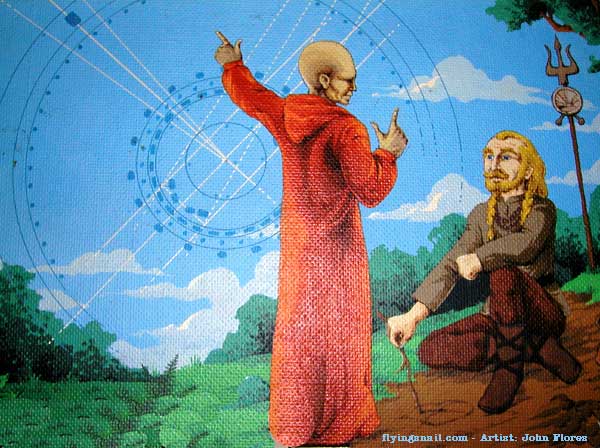
The man whispered, "God, speak to me" and a meadowlark sang. But the man did not hear. So the man yelled "God, speak to me" and the thunder rolled across the sky. But the man did not listen. The man looked around and said, "God let me see you" and a star shined brightly. But the man did not notice. And the man shouted, "God show me a miracle" and a life was born. But the man did not know. So the man cried out in despair, "Touch me God, and let me know you are there" Whereupon God reached down and touched the man. But the man brushed the butterfly away and walked on.

Don't miss out on a blessing because it isn't packaged the way you expect.

